Day 1 Speakers
Featured Speakers
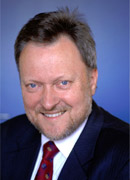
Deputy Vice-Chancellor (University Affairs)
The University of Melbourne
Australia
BIOGRAPHY
Professor Warren Bebbington
Professor Warren Bebbington is Deputy Vice-Chancellor (University Affairs) at The University of Melbourne, Australia, and has responsibility for the University's Engagement mission—the interaction of its teaching and research programs with the external world. This includes oversight of the University's public knowledge programs, its knowledge exchange initiatives in its Faculties and Schools, its external partnership development, and relations with key external stakeholders in government, media, business, the alumni, and the community.
Professor Bebbington studied at the University of Melbourne, and in New York as a Fulbright Scholar. Winner of awards for outstanding teaching in Australia, he has taught at the Universities of Melbourne, Queensland, and the Australian National University School of Music. His publications include the Oxford Companion to Australian Music, and he was for some years music member of the International Board of Advisers for Encyclopaedia Britannica. He has served in leading roles on the boards of several national cultural and community organizations in Australia.
Seven Principles for Embedding the Knowledge Exchange Agenda
ABSTRACT
Seven Principles for Embedding the Knowledge Exchange Agenda
Making Knowledge Exchange an integral part of a large organisation means embedding it in the mission, the operating plans, the staff promotion and appraisal, and the organisation's programs, as well as taking a new approach to communication and interaction with partners and stakeholders in the outside world. At a time when knowledge exchange remains quite new, there are few models to follow. Drawing on the story of The University of Melbourne, Australia, where "Engagement" became a core part of the Mission five years ago, this session will trace the successes and failures of a large organisation's journey to becoming a truly engaged institution and a leader in knowledge exchange.
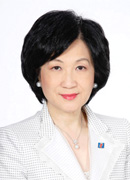
Member of the Legislative Council
Hong Kong
BIOGRAPHY
Hon. Mrs. Regina Ip, GBS, JP
Regina IP LAU Suk Yee - B.A.-First Class Honor (University of Hong Kong), Master of Letters (University of Glasgow), Master of Science in Management (Stanford University), and Master of Art in East Asian Studies (Stanford University)
Mrs. Ip worked for the Hong Kong Government from 1975 to 2003. During that time, she had served in a wide range of areas including democratization of local government, international trade and industry and security. She was the first woman to be appointed the head of a disciplined service (Immigration Department) (1996-98) and as Secretary for Security of Hong Kong (1998-2003).
In 2003 Mrs. Ip resigned from her position in the Government of the Hong Kong Special Administrative Region to take her daughter to the U.S. for education and to pursue higher studies herself. In June 2006 she returned to Hong Kong after completing the MA program in East Asian Studies at Stanford University. In July 2006, she established a think tank, Savantas Policy Institute, focused on tackling the twin structural constitutional and economic problems of Hong Kong. The core vision of Savantas is to transform Hong Kong into a knowledge-based economy.
In July 2007, Mrs. Ip was appointed by the Government as a member of the Commission on Strategic Development.
In September 2008, Mrs Ip was elected Legislative Council Member in the Hong Kong Island geographical constituency. In the same year, she joined the China Reform Council as Vice Chairperson (2008-2010). She was also awarded the title of "Outstanding person for Chinese Entrepreneurial Innovation 2008" by the Chinese Entrepreneurial Innovation Forum.
In December 2010, Mrs. Ip founded New People's Party and was elected the party chairperson.
Bridging the Gap: What Does it Take for Academic Research to be Translated into Innovative Industries?
ABSTRACT
Bridging the Gap: What Does it Take for Academic Research to be Translated into Innovative Industries?
Has Hong Kong made the transition to a knowledge economy? From the point of view of many pundits, Hong Kong has not made the transition, judging from the general education level of Hong Kong's population, the percentage of young people attending universities, the expenditure on R&D as a percentage of GDP, the narrow structure of the economy and the small proportion of technology- or knowledge-intensive production as a component of GDP. Hong Kong remains heavily dependent on economic stimulus generated by pro-growth policies adopted by China. The abundant resources available at our universities, in the form of theoretical knowledge, do not appear to have been fully utilized to create new knowledge-based, innovative services or industries
Despite its dire fiscal situation the US Government provided US$45.8 billion for new drug research in 2009, and established a National Centre for Advancing Translational Sciences to promote commercialization of theoretical knowledge and bridge the divide between academia and industry. What does it take for academic research to be successfully translated into innovative industries? Is it possible to replicate the success of the Silicon Valley in Hong Kong, or Hong Kong in conjunction with the Pearl River Delta? What sort of intermediary organizations, market conditions and government support programs are necessary for Hong Kong's academia and technology entrepreneurs to succeed? These are some of the issues I wish to explore in my presentation.
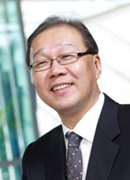
Managing Director
Agency for Science, Technology and Research (A*STAR)
Singapore
BIOGRAPHY
Professor Teck Seng Low
Professor Low joined the Department of Electrical Engineering, National University of Singapore (NUS) in 1983 and founded the Data Storage Institute (DSI) in 1992. He left DSI in 1998 to become the Dean of the Faculty of Engineering at NUS. In 2002, Professor Low was asked by the Ministry of Education to become the founding Principal of the Republic Polytechnic, a position he held until 2008. After a stint as CEO of Parkway Education and Group Senior VP of Parkway Holdings, Professor Low joined A*STAR in 2009 as its Deputy Managing Director (Research). He was concurrently appointed as Executive Director of A*STAR's Science & Engineering Research Council. In 2010, he assumed the position as Managing Director of A*STAR.
Professor Low was awarded the National Science & Technology Medal in 2004 and awarded the Public Administration Medal (Gold) in 2007; He was conferred the Honorary Doctor of Science by Southampton University, UK in 2009. He is a Fellow of the IEEE.
A Multi-pronged Approach to Successful Technology Transfer
ABSTRACT
A Multi-pronged Approach to Successful Technology Transfer
Singapore's economy has successfully evolved from being a labour intensive economy to one which is knowledge-based and innovation-driven. Singapore's successful transformation can be attributed to the swift and concerted efforts by both the public and private sectors to grow the country's science and technology assets. Over the years, Singapore has developed a robust national R&D framework and holistic strategy which is predicated on a long term commitment by the Government to invest in R&D.
The R&D landscape in Singapore has evolved in tandem with industry and the Singaporean model of tech transfer seeks to transcend patenting and licensing; Singapore's Agency for Science, Technology and Research (A*STAR) looks to anchor key manufacturing activities and fuel the various ecosystems along their value chains in order to drive the economy.
In order to do this, Singapore's Economic Strategies Sub-Committee on "Growing Knowledge Capital" developed a multi pronged approach for research performers in Singapore to engage and anchor Multinational Companies; to nurture and develop capabilities of growing small and medium technology enterprises, with a focus to facilitate the growth of nascent sectors; and to create an environment suitable for nurturing local entrepreneurs and their start-ups.
A*STAR as an agency under the Ministry of Trade and Industry, is an engine for transforming the economy through research. Professor Low Teck Seng, MD of A*STAR, will share the Singapore story and describe how A*STAR plays an integral role in the shaping of the national technology transfer strategy.
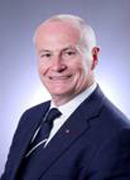
Chief Executive Officer
West Kowloon Cultural District Authority
Hong Kong
BIOGRAPHY
Mr. Michael Lynch , CBE, AM
Mr Lynch joined the West Kowloon Cultural District Authority in July 2011. He had a long and distinguished career in arts administration, serving as chief executive of the Sydney Opera House from 1998 to 2002 and then led the rejuvenation of London's Southbank Centre where he was Chief Executive from 2002 to 2009. Since then he has been a director of the Australian Broadcasting Corporation and a member of the Board of Film Victoria and the Myer Foundation. Mr Lynch was awarded an Order of Australia (AM) in the Queen's Birthday Honours List of 2001 for services to arts administration and as an advocate for Australian cultural life. In 2008, he was made a Commander of the British Empire (CBE) in the Birthday Honours for his services to the arts.
Panel Discussion on Arts for Everyone: The Case for Culture in Hong Kong
ABSTRACT
Panel Discussion on Arts for Everyone: The Case for Culture in Hong Kong
Mr Lynch will have a dialogue with Professor Daniel Chua, Head of the School of Humanities, The University of Hong Kong, on "Arts for Everyone: The Case for Culture in Hong Kong".
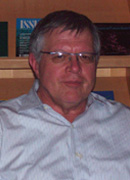
Executive Director, Board on Science, Technology, and Economic Policy (STEP)
The National Academies
United States
BIOGRAPHY
Dr. Stephen A. Merrill
Stephen Merrill has been Executive Director of the National Academies' Board on Science, Technology, and Economic Policy (STEP) since its formation in 1991. With the sponsorship of numerous federal government agencies, foundations, multinational corporations, and international institutions, the STEP program has become an important discussion forum and authoritative voice on innovation, competitiveness, intellectual property, human resources, statistical, and research and development policies. At the same time Dr. Merrill has directed many STEP projects and publications, including A Patent System for the 21st Century (2004), Innovation Inducement Prizes (2007), and Innovation in Global Industries (2008). For his work on patent reform he was named one of the 50 most influential people worldwide in the intellectual property field by Managing Intellectual Property magazine and earned the Academies' 2005 Distinguished Service Award. Recommendations of the 2004 report have been reflected in federal court decisions and incorporated in the America Invents Act of 2011. Merrill is a member of the World Economic Forum Global Council on the Intellectual Property System.
Previously, Dr. Merrill was a Fellow in International Business at the Center for Strategic and International Studies (CSIS), where he specialized in technology trade issues. He served on various congressional staffs including the U.S. Senate Commerce, Science, and Transportation Committee, where he organized the first congressional hearings on international competition in the semiconductor and biotechnology industries. Dr. Merrill holds degrees in political science from Columbia (B.A.), Oxford (M. Phil.), and Yale (M.A. and Ph.D.) Universities. He attended the Kennedy School of Government's Senior Executives Program and was an adjunct professor of international affairs at Georgetown University from 1989 to 1996.
Making Technology Transfer Thrive and Serve the Public Interest
ABSTRACT
Making Technology Transfer Thrive and Serve the Public Interest
A committee of the U.S. National Academy of Sciences, in a 2010 report, Managing University Intellectual Property in the Public Interest, reviewed America's experience with the 30-year-old system for managing inventions resulting from government-funded research put in place by the Bayh-Dole Act of 1980 and concluded that it has been more effective than the predecessor system in making research advances available to the public and spurring innovation but that it can be made even more effective and better serve the public interest in rapid, widespread application of new technologies.
University leaders – presidents, chancellors, and trustees – need to articulate a clear mission for intellectual property management -- one that stresses the responsibility to disseminate technologies for the public good and does not predicate licensing on the goal of raising significant revenue for the university -- and should evaluate their institutions' efforts accordingly – involving business, local and regional officials, and other institutions in that evaluation. Universities also should consider additional ways to engage faculty in commercializing their inventions, as successful commercialization often depends on inventor involvement. Universities seeking to encourage entrepreneurial initiative should consider creating expedited procedures and more standardized terms for licensing to start-up enterprises in which staff, faculty, or students are involved. In addition, there should be independent oversight of the relationship between faculty and university technology transfer offices, and faculty who believe their inventions are being ignored or mishandled should have recourse within their institution. Such disputes should be resolved by an advisory committee composed of university faculty, employees, and administrators.
Institutions with sizable research portfolios should also consider creating an additional standing advisory committee to help the technology licensing unit identify opportunities and develop practices consistent with the university's goals. Such committees should include representatives of research parks and business incubators affiliated with the university, relevant business and investment communities, and other stakeholders. Smaller institutions and those with less research experience who want to strengthen their technology transfer should consider permitting greater outreach by faculty to pursue the entrepreneurial development of their ideas, collaborating with larger institutions in the same region, or outsourcing certain functions or technology fields to private entities with appropriate skills and contacts.
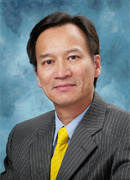
Vice Provost for Technology Transfer & Economic Development
Cornell University
United States
BIOGRAPHY
Dr. Alan Paau
Since 2007, Dr. Alan Paau is Vice Provost for Technology Transfer & Economic Development at Cornell University. He is also Executive Director of the Cornell Center for Technology Enterprise & Commercialization and President of the Cornell Research Foundation. He is responsible for the strategic management of all technologies and intellectual property that arise from the research activities at Cornell University that includes the Weill Cornell Medical Colleges in New York City and in Doha, Qatar, the New York State Agricultural Experiment Station in Geneva, NY, and the main campus in Ithaca, NY. Previously, he was Assistant Vice Chancellor for Technology Transfer & Intellectual Property Services at the University of California San Diego (1998-2007); Executive Director of the Iowa State University Research Foundation (1994-1998); and Associate Director of the Ohio State Biotechnology Center (1992-1994). He held faculty appointments in Zoology & Genetics and in Microbiology, Immunology & Preventive Medicine while at Iowa State and in Microbiology and Plant Pathology at Ohio State. As a technology development and management veteran both in industry (1980 to 1992) and in academic (since 1992), Dr. Paau is a Certified Licensing Professional™ who holds a doctoral degree in Biological Sciences, a Master of Business Administration degree, and attended the Drake University School of Law. Dr. Paau has supervised over 1,200 technology transactions and the formation of over 130 new businesses using licensed technologies.
Academic Technology Transfer Essentials
ABSTRACT
Academic Technology Transfer Essentials
Academic technology transfer is an important mechanism for the development of a knowledge-based economy. The success of the individual academic technology transfer program often is influenced by many factors of the particular institution.
This lecture reviews of the evolution of academic technology transfer in the United States and examines some of the key factors that are essential to the success of academic technology transfer.
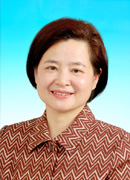
Vice Director
Science, Industry, Trade and Information Technology Commission of Shenzhen
Municipality
People's Republic of China
BIOGRAPHY
Ms. Qiu Xuan
邱宣,女,汉族,籍贯北京,中共党员, 生物制药高级工程师,博士研究生,现任深圳市科技工贸和信息化委员会副主任
邱女士在高校、企业、事业单位和机关工作过。曾任深圳高新区孵化器有限公司总经理、深圳高新区生物孵化器有限公司董事长,深圳虚拟大学园管理服务中心主任、深圳市高新技术产业园区领导小组办公室副主任。邱女士长期从事科技企业孵化、公共服务平台建设和科技管理工作,熟悉国家和地方的科技产业政策,对深圳科技创新与高新技术产业的发展有着较为深入的了解和研究。运用专业知识并结合工作实际主持了多项课题研究,已独立发表论文十余篇。
十二五时期深圳科技产业发展及深港合作展望
ABSTRACT
十二五时期深圳科技产业发展及深港合作展望
主要介绍深圳市"十二五"时期科技产业的发展规划,并对在新时期、新平台、新政策条件下"深港创新圈"的发展提出我们的思路。
一、深圳科技产业发展环境不断优化
(一)政府对科技创新的投入持续加大。
(二)重大科技基础设施开工建设。
(三)创新载体数量增加。
(四)科技创新与金融服务的结合更加紧密。
(五)协同创新促进了科技创新与成果转化。
(六)引进新型科研机构提升了创新能级。
二、深圳科技创新能力显著提升
(一)核心专利与知识产权产出居全国前列。
(二)制定国际标准数量位居全国大中城市第一。
(三)新一代信息技术占据全球制高点。
(四)生物基因技术取得重大突破。
三、"十二五"深圳科技产业发展规划
"十二五"期间,深圳将做强做大发展高新技术产业,加快培育战略性新兴产业,重点发展生物、互联网、新能源、新材料、文化创意和新一代信息技术产业,通过采取切实有效的政策措施,突破一批核心技术,掌握一批自主知识产权,培育一批核心竞争力较强的骨干企业。深圳将实施一系列的战略性新兴产业振兴发展专项规划、产业专项资金扶持计划,重点布局建设若干个服务功能突出、产业特色鲜明的战略性新兴产业基地,打造一批产业链关联效应明显的集聚区力争成为我国具有国际竞争力和影响力的战略性新兴产业重要基地。
四、深化深港创新科技合作促进深港融合发展
"十二五"期间,深圳将全面加强"深港创新圈"建设。一是加强深港高等院校和研究机构更紧密合作,积极引进香港各类实验室、企业研发中心在深圳设立分支机构。二是加快推进深港创新基地、服务平台和重大研究专项的建设实施。三是建立健全深港科研设备和科技信息开放共享机制,强化创新平台的公共服务功能。在《深圳市国民经济和社会发展第十二个五年规划纲要》中还制定了多项发展政策,促进深港融合发展。主要包括:以前海为载体推动深港现代服务业共同发展;促进深港交通更加便捷;拓宽深港交流合作领域等。
"十二五"时期,深圳将按照国家发展的新要求,发挥先行先试的重要作用,以自主创新增强发展动力,以自主创新加快转型升级,以自主创新促进可持续发展,创新发展、转型发展、绿色发展、和谐发展,努力将深圳建设成为中国特色社会主义示范市和现代化国际化先进城市。
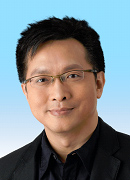
Member of Legislative Council (Information Technology)
Hong Kong
BIOGRAPHY
Ir. Dr. Hon. Samson Tam, JP
Samson Tam is a home-grown IT man with an international orientation, with a bachelor degree from CUHK and a doctorate from Hong Kong Polytechnic. In 1989, at age 24, he successfully launched his first invention. By 1993, Tam's company, with him as Chairman, was listed on the Stock Exchange of Hong Kong. Tam himself was named one of the "Ten Outstanding Young Persons" in year 1997. In June 2008, in recognition of his service and leadership in technology and the community, Tam was awarded an Honorary Fellowship by The Hong Kong University of Science and Technology.
He knows that creativity is the essence of the IT industry. Nurturing creative entrepreneurship keeps the industry growing. He has been willing to participate in angel investments to help out local budding IT entrepreneurs.
He was successfully elected to be the Legislative Councilor (ITFC) in September 2008. He believes it is important to effectively use the Internet for 2.0 interactive communications. He has set up several discussion groups on various topics on different SNS platforms. He is also actively pushing the Government to set up the Innovation and Technology Bureau, to propel development of the local science and technology and digital creative industry.
Is it Possible for Hong Kong to Develop an Asian Apple Tree Ecosystem?
ABSTRACT
Is it Possible for Hong Kong to Develop an Asian Apple Tree Ecosystem?
Mobile Internet has become one of the main trends for ICT industry. It provides lots of opportunities for creative youngsters. With the pattern of open innovation, Apple Inc. has built up some kind of Apple Tree Ecosystem. Its App Store serves as an interactive platform for the development of thousands of mobile apps. I think, in similar way, through knowledge partnerships with Mainland China and Taiwan, Hong Kong can make better use of its international network and multi-lingual capacity to develop an Asian Apple Tree Ecosystem. In order to make this come true, the HKSAR Government should establish an Innovation and Technology Bureau and provide support in infrastructure, policies, and talent development. Our youngsters will then be exposed to more opportunities of high value-added jobs.
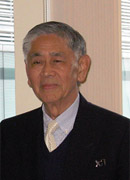
Professor Emeritus,College of Engineering
University of California, Berkeley
United States
BIOGRAPHY
Professor Eugene Wong
Eugene Wong received his BS, MA, and PhD degrees (electrical engineering) from Princeton. He joined the faculty of the University of California at Berkeley in 1962, where he later served as Chair of the Department of Electrical Engineering and Computer Sciences. With research interests in stochastic systems and database management, Wong was a co-designer of INGRES, one of the first modern database systems, and the author of a major text on stochastic processes. He is Emeritus Professor of Electrical Engineering and Computer Sciences at Berkeley.
From 1990 to 1993, Wong served as Associate Director of the White House Office of Science and Technology Policy, and from 1998 to 2000 he headed the Engineering Directorate of the National Science Foundation. He was Vice President for Research at HKUST (1994-96) and chaired the Council of Advisors on Innovation and Technology in Hong Kong (2002-2004). He was a long-time International Advisor on Science and Technology to the Prime Minister of Taiwan (2002-2011) where he recently led a major science policy study, Foresight Taiwan (2007-2010).
He was a co-founder of INGRES Corporation and a one-time President and CEO of Versata, Inc. Currently, he is an advisor to the Siemens Technology-to-Business Center; a member of the Board of Directors of NACCO Industries, Inc.; and a partner in Berkeley Quantitative, LLC, an investment fund specializing in mathematical trading strategies.
Wong received the ACM System Prize in 1988 for his work on INGRES and the IEEE Founders Medal in 2005 for career long contributions. He is a member and former Councilor of the U.S. National Academy of Engineering, a Fellow of the American Academy of Arts and Sciences, an Academician of Academia Sinica, and a foreign member of the Royal Swedish Academy of Engineering (IVA).
Knowledge Exchange: A Few Bumps on the Tried and Tested Roads
ABSTRACT
Knowledge Exchange: A Few Bumps on the Tried and Tested Roads
HKU defines knowledge exchange as engaging, for mutual benefit, with business, government or the public to generate, acquire, apply and make accessible the knowledge needed to enhance material, human, social, cultural and environmental well-being.
Insofar as it pertains to the part of university-industry relationship dealing with academic research, the term "knowledge exchange" is somewhat misleading. Neither party is really interested in exchanging knowledge. Companies want intellectual property rights that would provide them with a significant edge in an increasingly competitive marketplace. Universities, both administration and faculty, want financial support from the companies. While there are indeed "tried and tested' roads toward these ends, the relationship, never easy, is increasingly fraught for a variety of reasons.
Since the beginning of industrial revolution, science has been responsible for transforming human life in ways inconceivable in any earlier era. Universities have always been a major player in scientific advances through research, and their role is increasingly dominant. On the other hand, technologies that are rooted in scientific research have been a major source of competitive advantage for companies. That role is also more important than ever. In these circumstances, both parties have a strong incentive to align their interests to create a natural synergy. However, in practice, however, it is surprisingly difficult to realize such synergy.
From the perspective of industry, both startups and large companies, the marketplace is increasingly challenging and innovation is the principal component of any successful strategy in dealing with the challenges. While universities will continue to be a major source of innovation, companies are seeking more specific results in their relationship with universities. In this talk, I shall focus on the changing landscape of innovation from the perspective of large and small companies and what universities need to do in building successful KE relationships. The roads may be tried and tested, but they need repairs and upgrading.
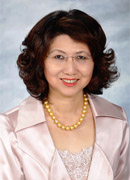
Commissioner for Innovation and Technology
Government of the Hong Kong Special Administrative Region
BIOGRAPHY
Miss Janet Wong, JP
Miss Janet Wong assumed her present post as the Commissioner for Innovation and Technology in September 2009 responsible for the formulation and implementation of policies pertaining to innovation and technology, a new pillar industry in Hong Kong.
Miss Wong joined the Civil Service as an Administrative Officer in 1980. Over the years, she has served in various bureaux and departments, including the Independent Commission Against Corruption, Food and Environmental Hygiene Department, Education and Manpower Bureau and Home Affairs Department. In 2004 Miss Wong was appointed to be the Head of the World Trade Organisation Sixth Ministerial Conference Coordination Office. In 2006 she took up the post of Deputy Secretary (Works) in the former Environment, Transport and Works Bureau which became the Development Bureau upon the re-organisation of the Government Secretariat in July 2007. She was then responsible for the Government's Capital Works Programme and heritage matters.
Creation of a Favourable Ecological Environment for Facilitating Realisation of R&D Results
ABSTRACT
Creation of a Favourable Ecological Environment for Facilitating Realisation of R&D Results
Moving from an idea or discovery to a product, process, or service on the market is a complex process. Through its focused and yet multi-dimensional initiatives, the Innovation and Technology Commission (ITC) has long supported applied research and development (R&D) activities that move an idea past the basic discovery stage towards the realisation/commercialisation stage. These initiatives include the provision of funding and infrastructural support, promotion of technology collaboration between Hong Kong and Mainland, and promotion of an innovation culture.
With the designation of innovation and technology as one of the six new economic areas of Hong Kong, Government has since enhanced the policy framework for promoting innovation and technology, with emphasis on fostering a closer collaboration among the government, industry, research and academic sectors (官產學研) to synergise valuable research effort.
In creating a favourable ecological environment, ITC has launched a number of new initiatives that leverage on its vast network of researchers, universities, industries and public sector organisations. These include -
- Enhancement of the Innovation and Technology Fund (ITF) to support projects with greater prospects of realisation/commercialisation;
- Launching of the “Promotion of Use of Innovation and Technology in the Public Sector Programme” with a view to enhance the use of innovation and technology in government and increase the referencibility of research deliverables for subsequent commercialisation and marketing efforts;
- Motivating the private sector to increase investment in R&D activities, etc.
With a dedicated chapter in the National 12th Five Year Plan that affirms the Central Government’s support on Hong Kong’s development of the six new economic areas – innovation and technology, medical services, environmental industries, testing and certification, education services, cultural and creative industries where Hong Kong enjoys clear advantages, and their expansion into the Mainland, the Government would make every effort to create a favourable ecological environment to dovetail the Plan and enable innovation and technology to flourish.
Invited Speakers
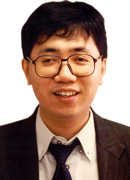
Dr. Hui Wai Haan Chair of Chemistry
Department of Chemistry
The University of Hong Kong
BIOGRAPHY
Professor Chi-Ming Che
Professor Chi-Ming Che received his B.Sc. and Ph.D. in 1978 and 1982, respectively, from The University of Hong Kong (HKU). From 1980 to 1983, he studied at the California Institute of Technology under the guidance of Professor Harry B. Gray. Thereafter, he returned to his alma mater, where he was promoted to Chair Professor of Chemistry in 1992. Since 1997 he has been the Dr. Hui Wai-Haan Chair of Chemistry in HKU. His research interests include inorganic and organic synthesis; metal-ion promoted organic transformations; reactive metal-ligand multiple bonded complexes; inorganic photochemistry; luminescent materials; bioinorganic chemistry; and inorganic medicines. Over 100 Ph.D. students have successfully completed their studies at HKU under his supervision. With more than 700 publications and an H-index of 76, Professor Che is one of the ISI Highly Cited Researchers. He is a current member of the international advisory board of Chemistry-A European Journal, Chemistry-An Asian Journal, Chemical Science, ChemCatChem, and Journal of Inorganic Biochemistry.
In 1995 Prof. Che was elected as a member of the Chinese Academy of Sciences and became the first CAS member from Hong Kong and the youngest CAS member at that time. He was elected as a Fellow of World Innovation Foundation (2004), a Fellow of Federation of Asian Chemical Societies (2005), a Fellow of TWAS in Chemical Sciences (2007), and a Fellow of The Royal Society of Chemistry (2009). He received the following awards or prizes: National Natural Science Prize of China (1993), Croucher Senior Fellowship (1997), Chung-Hsing S&T Lectureship (1997), Distinguished Research Achievement Award of the University of Hong Kong (2000), IUF Invited Professorship of France (2000), Federation of Asian Chemical Societies Foundation Lectureship (2003), Visiting Scientist of National Research Council of Italy (2004), Pfizer Signature Lecture (2006), TWAS Prize in Chemistry (2006), 1st Class State Natural Science Award of China (2006), Seaborg Lectureship at the University of California at Berkeley (2007), Prize of Ho Leung Ho Lee (HLHL) Foundation for Scientific and Technological Progress (2007), Edward Clark Lee Lectureship at University of Chicago (2008), the Leader of Year 2008 Hong Kong (Research), Fellow of Royal Society of Chemistry (2008) and Molecular Sciences Forum Lecture Professorship at Institute of Chemistry, CAS (2009).
Organic Light-Emitting Diodes
ABSTRACT
Organic Light-Emitting Diodes
Organic light-emitting diodes (OLEDs) with unique features including fast response time, ultra-thin panel structure, low-power consumption and wide viewing angle, continue to draw substantial attention in the development of next generation of new display technology. Over the decades, we have been doing fundamental research in the development of innovative highly robust phosphorescent metal emitters with practical applications in OLEDs, and improving technology in process and production of these materials. Over the past 10 years, we jointly worked with Sun Yat-Sen University, Clover & Coled Display Ltd., OLED-T Ltd., and Teijin Dupont Films Japan Ltd., to promote the research and development of new materials and printing technologies.
Through partnerships with local, international and Mainland display companies, we have been able to develop novel and patentable materials for OLEDs with practical applications. We have also produced patentable technologies for applications in electronics, displays and lighting. Our recent endeavour is to collaborate with display and materials companies in Mainland to launch the technological know-how for AMOLED panel production with high yields in Hong Kong and in Guangdong. Meanwhile, training of scientists and engineers in local companies promotes research and development in the area of OLEDs. Research findings and technological know-how are subsequently transferred to industries. We are working to promote the development of new lighting industry and innovative electronic consumer products in Hong Kong and South China in the coming decade.
Acknowledgments. We are grateful for financial support from the Innovation and Technology Fund, National Natural Science Foundation of China/Research Grants Council Joint Research Scheme (N_HKU 752/08), Research Grant Council of Hong Kong (HKU 7008/09P), and The Chinese Academy of Sciences–Croucher Foundation Funding Scheme For Joint Laboratories.
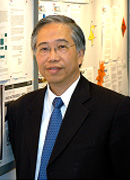
Head and Professor
Department of Computer Science
Director
Center for E-Commerce Infrastructure Development
The University of Hong Kong
BIOGRAPHY
Professor David W.L. Cheung
Professor David W.L. Cheung is the Head of Department of Computer Science and Director of the Center for E-commerce Infrastructure Development (CECID) in The University of Hong Kong. He conducts research in database, cloud computing and e-commerce technologies. He is a Distinguished Fellow of the Hong Kong Computer Society. He was the recipient of the HKU Outstanding Researcher Award. Most recently, he received the Distinguished Contribution Award in the 2009 Pacific-Asia Data Mining and Knowledge Discovery Conference. He was the program chairman of the 2001 and 2005 Pacific-Asia Knowledge Discovery and Data Mining Conferences, the conference chairman of the 2007 PAKDD Conference. He was also the conference co-chair of the 2009 CIKM Conference. Concerning applied research, Professor Cheung and his team have developed open-source ebXML gateway, which has received awards in various prominent competitions, including the Hong Kong 2004 IT Excellence Awards, the 2004 Asia-Pacific ICT Awards, and the 2005 Linux Business Awards. He has received more than 70M of ITF grants as PI or Coordinates.
From ebXML Gateway to the Challenge of Applied Research in Hong Kong
ABSTRACT
From ebXML Gateway to the Challenge of Applied Research in Hong Kong
In the area of electronic commerce, a family of XML based standards known as ebXML was sponsored by OASIS and UN/CEFACT in 2002. Its mission is to provide an open XML-based infrastructure to conduct electronic business by trading partners. In 2002, the Center of E-Commerce Infrastructure and Development (CECID) at HKU received an ITF grant for the implementation of the ebXML infrastructure. As a deliverable of the project, a software named Hermes was released as an open source software. It has since become the most popular ebXML messaging gateway in the world. In Hong Kong, Hermes is being used in many B2B systems including the Government Electronic Trading Services (GETS) system, the office supplies procurement system in MTRC. The GETS system processes over 20 million document exchanges annually. In this talk, we will share our success, excitement and difficulties experienced in doing applied research and technology transfer in Hong Kong.
Research Associate Professor
Department of Orthopaedics and Traumatology
The Chinese University of Hong Kong
BIOGRAPHY
Professor Louis Wing Hoi Cheung
Dr. Louis Cheung is a Research Associate Professor in Department of Orthopaedics and Traumatology and Deputy Director of Musculoskeletal Laboratory, The Chinese University of Hong Kong. He also serves as a programme committee member of Biomedical Engineering programme, CUHK. His research interests are biology of osteoporotic fracture healing and applications of biophysical interventions for enhancement of fracture healing. He co-invents low-magnitude high-frequency vibration technology with Prof. KS Leung; has one obtained and two pending patents. Dr. Cheung published 43 SCI peer-reviewed international journal papers and serves as editorial board member, reviewers of several funding bodies and international journal in orthopaedics, like AO Foundation and Orthopaedic Research Society. He is also the invited reviewers of a few international orthopaedics-related journals. Dr. Cheung devotes into knowledge transfer activities as well since 2000 in fall prevention to serve community elderly.
Interactive Engagement with the Community: From Public Education to Academic Research
ABSTRACT
Interactive Engagement with the Community: From Public Education to Academic Research
Tissue regeneration research team of Department of Orthopaedics and Traumatology, The Chinese University of Hong Kong, led by Prof. KS Leung and Louis Cheung, puts effort in the past years on exploring the biology of osteoporotic fracture and enhancement of fracture healing using biophysical interventions. The research team confirms the impaired reparative ability of osteoporotic bones during fractures. This implies difficult clinical management of geriatric fracture patients, including treatment and rehabilitation and hence heavy burden of healthcare budget. The team also spent 6 years to invent a novel biophysical modality, vibration treatment that can effectively accelerate fracture healing by around 30% by enhancing new bone formation and increasing blood circulation.
In view of the escalating aging population in Hong Kong, the research team kicked off to set up a fall prevention team to serve the community in 2000 (http://www.no-fall.hk). The team has organized more than 150 educational talks for community elderly in the past decade to spread the message and knowledge on bone health and fall prevention. We also trained the staff in community centers to learn fall prevention in order to provide a better service for elderly. With the funding of medical foundations, a mobile van for fall prevention purpose was set up to serve the elderly in remote areas like Lantau Island. We therefore have a good network with community centers in Hong Kong. In recent years, a comprehensive fragility fracture program is established as well in Shatin district for rehabilitation of geriatric fracture patients, in which physical exercise classes, doctor consultations, medications and vibration treatment are provided. In the meantime, we make use of this opportunity to conduct large-scale clinical trials to evaluate the efficacy of vibration treatment on reducing fall and fracture rates. Overall, this is a good experience of the team to have the model of bench to public education to academic research.
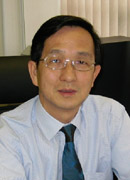
Associate Director
Professor of Pharmacology (Research)
School of Biomedical Sciences
The Chinese University of Hong Kong
BIOGRAPHY
Professor Chi Hin Cho
Professor C.H. Cho was the Chair Professor of Pharmacology from 2000 to 2007 in the University of Hong Kong before he joined the Chinese University of Hong Kong (CUHK) in 2007 as chairman and Professor of Pharmacology.
Currently, he is the Associate Director of the School of Biomedical Sciences, Faculty of Medicine in CUHK. He has been the President of the Gastrointestinal Pharmacology Section of the International Union of Basic and Clinical Pharmacology from 2006-2010 and visiting and honorary professors of Peking University, Fudan University, Zhejiang University, Beijing Capital University of Medical Science, the Fourth Military Medical University, Virginia Tech, University of Maryland and University of California, Irvine.
His current research interests focus on drug development for inflammation and cancers in the gastrointestinal tract. Professor Cho is the editorial board member and associate editor in more than 20 journals in the fields of Gastroenterology and Pharmacology.
He publishes more than 380 peer-reviewed articles in journals and books and is the editor of five books in gastrointestinal ulcer and cancer.
A Peptide Targeting Tumor Blood Vessels: From Experimental to Clinical Application
ABSTRACT
A Peptide Targeting Tumor Blood Vessels: From Experimental to Clinical Application
Ligand-mediated diagnosis and targeted therapy would have vital clinical applications in cancer treatment. In this study, an orthotopic model of colorectal cancer was established in the colon of mouse. Using this animal model an in vivo phage library selection was utilized to isolate peptides specifically recognizing the vasculature of colorectal cancer tissues but not the other tissues. A phage (termed TCP-1 phage) was isolated by this manner and it homed to the colorectal cancer tissues by 11- to 90-fold more than other organs. Chemical synthetic peptide (termed TCP-1) displayed by TCP-1 phage inhibited the homing ability of the phage to the tumor mass when co-injected intravenously with the TCP-1 phage into mice with colon cancer. Meanwhile, immunostaining analysis indicated that TCP-1 phage and peptide localized in the vasculature of the colorectal cancer tissue, but not normal tissues. Moreover, TCP-1 peptide bound to blood vessels of surgical tissue samples of human colorectal cancer, in particular in the advanced stages. These findings indicate that TCP-1 binds to a specific site which is localized only in the colonic tumor blood vessels.
In addition, TCP-1 when conjugated with a proapoptotic peptide specifically induced apoptosis in tumor blood vessels in vivo. These data define a novel peptide TCP-1 as an effective agent for imaging detection and drug delivery for colorectal cancers. This peptide and its analogues attract academic and industrial collaborations in the development of drug therapy and diagnosis for gastrointestinal cancers.
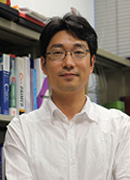
Assistant Professor
Department of Computer Science
Hong Kong Baptist University
BIOGRAPHY
Dr. Xiaowen Chu
Xiaowen Chu received his B.Eng degree from Department of Computer Science and Technology, Tsinghua University in 1999, and his PhD from Department of Computer Science, Hong Kong University of Science and Technology in 2003. He is currently an Associate Professor at the Department of Computer Science, Hong Kong Baptist University.
Dr. Chu's research interests include computer networks, all-optical networks, wireless networks, and parallel and distributed computing. He has published more than 100 research papers in International Journals and conferences. He has served as Chair/vice-Chair/Co-Chair of many International conferences and workshops, including the 3rd IEEE International Symposium on Security in Networks and Distributed Systems, the 10th IEEE International Conference on High Performance Computing and Communications, the 4th International Conference on Communications and Networking in China, the 7th Annual IEEE Consumer Communications & Networking Conference, the 1st and the 2nd International Workshop on Frontier of GPU Computing. He has also served as TPC members for many International conferences, including IEEE INFOCOM, IEEE GLOBECOM, IEEE ICC, IEEE PERCOM, etc. Dr. Chu has been a guest editor of Journal of Supercomputing and International Journal of Network Management. He has received the Best Paper Award of IEEE International Conference on Computer and Information Technology. He has been the PI and Co-I of many research projects and received many research grants with a total amount of 3 million HK dollars.
GPU Computing in Mainland China's Industry
ABSTRACT
GPU Computing in Mainland China's Industry
GPU computing means the use of GPUs (graphics processing units) to perform general purpose scientific and engineering computing. This new technology has been successfully applied in many real-world applications because of its low-cost and energy-efficiency. Inspur Group Co., Ltd. is one of the leading IT companies and the largest server manufacturer and server solution supplier in mainland China. In this talk, we will introduce the Inspur-HKBU Joint Laboratory for Heterogeneous Computing, which was recently established by the Department of Computer Science, Hong Kong Baptist University and Inspur. This joint laboratory combines the strength of both parties and focuses on the research and development of cutting-edge GPU computing technologies in order to provide low-cost and energy-efficient solutions to real-world applications. We will show some successful applications that we have developed together with Inspur and other third parties, including petroleum prospection in oil industry, 3D Reconstruction of Electron tomography, and DNA sequence alignment in bioinformatics.
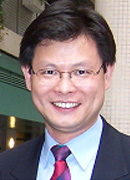
Head
Department of Computer Science
Hong Kong Baptist University
BIOGRAPHY
Professor Jiming Liu
Jiming Liu is the Chair Professor of Computer Science Department at Hong Kong Baptist University. His areas of research are in multi-agent autonomy-oriented computing (AOC), Web intelligence (WI), self-organizing/decentralized systems, as well as real-world complex system/complex network related problems (e.g., in health and health systems, extreme event management, and sustainability/energy management). Prof. Liu is a Fellow of IEEE. He obtained his Master of Engineering and Ph.D. degrees from McGill University, Montreal, and held full-time R&D positions at Computer Research Institute of Montreal (CRIM), Virtual Prototypes Inc. (VPI), and Knowledge Engineering Technology Inc. (KENTEK) in Canada prior to 1994. In 1999, Prof. Liu was an invited Visiting Scholar in Computer Science Department at Stanford University. Prof. Liu has published many international journal articles and conference papers, as well as authored research monographs and edited books. Prof. Liu has contributed to the community in various capacities, e.g., serving as the Editor-in-Chief of Web Intelligence and Agent Systems (WIAS), an Associate Editor of IEEE Transactions on Knowledge and Data Engineering, IEEE Transactions on Systems, Man, and Cybernetics–Part B, and Computational Intelligence: An International Journal, as well as a member of the Editorial Board of other international journals.
GPU Computing in Mainland China's Industry
ABSTRACT
GPU Computing in Mainland China's Industry
GPU computing means the use of GPUs (graphics processing units) to perform general purpose scientific and engineering computing. This new technology has been successfully applied in many real-world applications because of its low-cost and energy-efficiency. Inspur Group Co., Ltd. is one of the leading IT companies and the largest server manufacturer and server solution supplier in mainland China. In this talk, we will introduce the Inspur-HKBU Joint Laboratory for Heterogeneous Computing, which was recently established by the Department of Computer Science, Hong Kong Baptist University and Inspur. This joint laboratory combines the strength of both parties and focuses on the research and development of cutting-edge GPU computing technologies in order to provide low-cost and energy-efficient solutions to real-world applications. We will show some successful applications that we have developed together with Inspur and other third parties, including petroleum prospection in oil industry, 3D Reconstruction of Electron tomography, and DNA sequence alignment in bioinformatics.
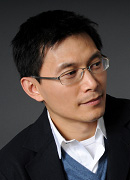
Head
School of Humanities
The University of Hong Kong
BIOGRAPHY
Professor Daniel K.L. Chua
Before joining Hong Kong University as the Head of the School of Humanities, Daniel K. L. Chua, was a fellow and the Director of Studies at St John's College, Cambridge, and later Professor of Music Theory and Analysis at King's College London. He was a Henry Fellow at Harvard and is the recipient of the 2004 Royal Musical Association's Dent Medal. He has written widely on music, from Monteverdi to Stravinsky; his publications include The 'Galitzin' Quartets of Beethoven (Princeton, 1994) and Absolute Music and the Construction of Meaning (Cambridge, 1999). He is also Director of HKU's Advanced Cultural Leadership Programme.
Panel Discussion on Arts for Everyone: The Case for Culture in Hong Kong
ABSTRACT
Panel Discussion on Arts for Everyone: The Case for Culture in Hong Kong
Professor Chua will have a dialogue with Mr Michael Lynch, Chief Executive Officer of the West Kowloon Cultural District Authority, on "Arts for Everyone: The Case for Culture in Hong Kong".
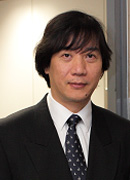
Assistant Professor
Department of Chinese, Translation and Linguistics
City University of Hong Kong
BIOGRAPHY
Dr. Alex Chengyu Fang
Alex Fang is based at the Department of Chinese, Translation and Linguistics, City University of Hong Kong and lectures on topics devoted to corpus linguistics, computational linguistics and machine translation. He currently supervises 6 PhD students. He has published widely and his most recent monographs include English Corpora and Automated Grammatical Analysis (2007) and Contributions of Syntax to Terminology Extraction (2010). He is closely involved with ISO TC37/SC4 in projects on standards for linguistic annotations and is also an expert member of the China National Technical Committee for the Standardization of Terminologies and Language Resources. He was previously Deputy Director of the Survey of English Usage, University College London.
Alex is the founding director of the Dialogue Systems Group, a research lab with 10 researchers and 12 affiliated international scholars. The lab performs corpus-based investigations into human speech and language and aims to develop linguistically motivated computational systems for automatic speech and language processing. In particular, it is currently developing man-machine spoken dialogue systems accessible via both the telephone and the Internet. At the same time, research is also being conducted at the DSG into corpus construction, corpus annotation, and dialogue act analysis.
Alex is also the founding president of The Language Automation Company.
Linguistics, Language Industry and Language in Industry
ABSTRACT
Linguistics, Language Industry and Language in Industry
Linguistics is the scientific study of human language in terms of form, meaning and context. With the exponential growth of information, computational approaches to linguistic analysis have constituted a core research area that is collectively known as computational linguistics and have been the major driving force for advances in language engineering. Practical needs such as automatic text retrieval, natural language understanding and text summarization have led to fast development of the language industry. In this presentation, we describe the research and development of speech and language technologies at the Dialogue Systems Group, based at the Department of Chinese, Translation and Linguistics, City University of Hong Kong and demonstrate how academic research can be adapted to suit practical needs arising both from the local community and from the industry. In particular, we showcase an interactive spoken dialogue system that has been designed to facilitate speech-driven information retrieval based on terminologies, the processing of which has associated the Group internationally with the industry and professional services.
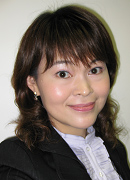
Assistant Professor
Department of Applied Social Studies
City University of Hong Kong
BIOGRAPHY
Dr. Annis Lai-chu Fung
Dr. Annis Fung Lai-chu is an Assistant Professor in the Department of Applied Social Studies, mainly teaching social work and counselling courses. She won the 2009 Teaching Excellence Award from City University of Hong Kong, and in 2008, received a research award entitled, Outstanding Project Award, from the Quality Education Fund (QEF) of the Education Bureau. QEF selected 20 outstanding projects from the more than 7,000 funded from 1998 to 2008. Dr. Fung secured a five-year project, Project C.A.R.E. (Children and Adolescents at Risk Education, 有教無『戾』--- 校園欺『零』計畫), from QEF. It has been funded three times from September 2006 to August 2011 for a total of $11 million. This pioneer research project addresses youth aggression and peer victimization of school bullying in Hong Kong.
Publications based on this project have appeared in top ISI international journals. In 2010, Dr. Fung received the 60th Anniversary Distinguished Alumni Award from the Department of Social Work and Social Administration at The University of Hong Kong. She was honoured for her outstanding contributions to social work research and education.
Project C.A.R.E.: Primary and Secondary Hong Kong Students' Aggression and Peer Victimization of Bullying
ABSTRACT
Project C.A.R.E.: Primary and Secondary Hong Kong Students' aggression and Peer Victimization of Bullying
Project C.A.R.E. (Children and Adolescents at Risk Education), spearheaded by City University of Hong Kong (CityU) and directed by Dr. Annis Fung Lai-chu (Assistant Professor-Department of Applied Social Studies), received three rounds of funding of $11 million from the Quality Education Fund (QEF) from September 2006 to August 2011. 77 secondary and primary schools participated and 158 schools are on the waiting list. This was a ground-breaking project grounded in theory and empirically driven ecological interventions to reduce student reactive and proactive aggression, and aggressive and passive victimization of school bullying. Employing surveys and individual interviews, the project identified high-risk aggressors and victims from more than 33,000 students. Interventions included students, parents, and parent-child groups, and a "Harmony Ambassador Scheme." Eight to 10 sessions of Cognitive-Behavioural group therapy were offered. Persons in the Ambassador program interacted with elder peers with positive and pro-social behavior through outdoor and experiential activities.
Behavioural changes were assessed by self-report, teachers, and parents at pretest, posttest, and following treatment, supporting the program's long term effectiveness. Significant improvement was found in the proactive aggressors' bullying and reactive aggressor's impulsively aggressive behaviour, and the alleviation of emotional problems (e.g., depression, anxiety, anger). Aggressive and passive victims also indicated reductions in physical and verbal victimization, property attack, and social manipulation, and increases in school security and confidence establishing interpersonal relationships. Results can strengthen training for teachers, counsellors, social workers, police officers, and psychologists to enhance their skills to address youth aggression. Six sets of manuals, 11 booklets, and DVDs were published for this purpose. The public benefited from the Harmony School Competition, drama competition, slogan writing project, open forums, and radio and television programs promoting "zero" violence and anti-aggressive cultures in communities. Internationally, the project led to publications in top international journals and presentations at worldwide conferences.
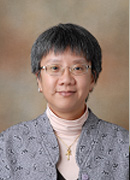
Assistant Dean (School-University Partnerships)
and Associate Professor
Faculty of Education
The University of Hong Kong
BIOGRAPHY
Professor Tammy Y.L. Kwan
Tammy Kwan taught social, geographical and environmental education in the Queensland University of Technology before returning to The University of Hong Kong in 1998 as Associate Professor. She has been PGDE program director (2005-2007) and was partnership director for initial teacher education from 2007-2010. She is now Assistant Dean (School-University Partnerships). She has a strong commitment to encouraging teachers to become critically reflective professionals through better personal understanding and to achieve professional development and personal growth. She is responsible for setting up the community of Professional Partnership Schools which encourages the adoption of a 'whole school mentoring support' approach to actualize School-University Partnerships.
Extending the Boundary of School-University Partnerships
ABSTRACT
Extending the Boundary of School-University Partnerships
The major aim of School-University Partnerships (SUP) is to achieve and consolidate in-depth collaboration between schools and the Faculty of Education, HKU, in order to enhance the continuous professional development of schools and teachers, and further the success of initial teacher education.
To achieve this aim, a "whole school mentoring support" has been promoted to involve teachers and principals who share a similar vision. Schools that are committed to this approach are eventually invited to become part of our group of "Professional Partnership Schools (PPS)". This group represents an enlarged collaborative community of 19 PPS, all of which have signed a 3-year memorandum with the Faculty. This has allowed partnership schools to benefit from a mutual exchange of professional experiences, bringing about meaningful school improvements and better student learning.
Since 2007, we have witnessed the extension of the boundary of SUP in the following aspects to strengthen our collaboration:
- Through Initial Teacher Education Practicum Placement within each school, there has been a huge increase in the number of mentor-teachers in each school.
- We have extended the initiative so that it includes primary schools as well as secondary schools.
- As well as knowledge exchange with student-teachers, mentor- teachers and principals, we have also included parents so that they might understand better the collaboration between schools and our faculty.
- We have extended partnership from individual schools to cluster schools as a way of multiplying the positive effects of SUP.
- We have extended our focus from practicum placement to the encouragement of professional teacher development which has led to school improvement by infusing research opportunities into schools.
- We have extended our communication to include major School Sponsoring Bodies as well as individual schools.
- We have extended our geographical locus from the local Hong Kong context to the pioneering of overseas international practicum exchange.
We strongly believe that by extending the boundary of the various forms of KE activities, we have generated a profound impact on the local school community as well as the broader educational community. This has further actualised the spirit of "School-University Partnerships" so that it lives up to the Faculty's mission of nurturing our graduates and transforming them into passionately committed teaching professionals.
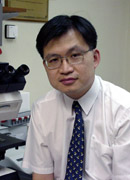
Chui Fook-Chuen Professor in Molecular Medicine,
Chair of Haematology and Oncology,
and Chief of the Division of Haematology
Medical Oncology and Bone Marrow Transplantation
Department of Medicine
The University of Hong Kong
BIOGRAPHY
Professor Yok Lam Kwong
Professor Y.L. Kwong is chief of the Division of Haematology, Medical Oncology and Bone Marrow Transplantation at the Department of Medicine, University of Hong Kong. He is a chair professor, and holds the Chui Fook Chuen Chair in Molecular Medicine. He is specialized in haematology and haematopathology. His clinical work focuses on the management of haematological malignancies. His research centers on the molecular pathogenetic pathways and novel treatment modalities in haematological neoplasms. Together with the clinical pharmacology team in his department, Professor Kwong has pioneered the development and use of oral arsenic trioxide in the treatment of acute promyelocytic leukemia and other blood cancers. The oral arsenic trioxide formulation has successfully secured patents in the United States of America and Japan. An international oral arsenic trioxide user group has been formed to promote clinical use and research in this area. His research team is also actively involved in defining the molecular defects and optimal treatment protocols for T-cell and natural killer cell lymphomas, which are neoplasms prevalent in Asian populations. His team is widely regarded as one of the world opinion leaders in the treatment of T-cell and natural killer-cell malignancies.
The Development of Oral Arsenic Trioxide for Cancer Treatment: Academic Success, Economic Implications and Global Perspectives
ABSTRACT
The Development of Oral Arsenic Trioxide for Cancer Treatment: Academic Success, Economic Implications and Global Perspectives
Arsenic trioxide (As2O3) has been used medicinally for millennia in both Chinese and Western medicine. It was first demonstrated to be effective in the treatment of chronic myelogneous leukaemia in the nineteenth century. After the Second World War, As2O3 continued to be used as a standard medication for leukaemia treatment until the advent of modern chemotherapy. Its therapeutic efficacy was re-discovered in the 1970s first in Harbin and then in Shanghai for the treatment of acute promyelocytic leukaemia (APL). The intravenous (i.v.) formulation was used. Despite its discovery in China, a United States (US) patent was granted to US investigators, resulting in the marketing of i.v.-As2O3 at prohibitive prices, making the medication unaffordable in less affluent countries.
Based on the experience of using "liquor arsenicalis" (oral arsenic) in the Department of Medicine, Queen Mary Hospital, C.R. Kumana and Y.L. Kwong researched on the preparation of oral-As2O3. The group succeeded in producing an oral-As2O3 formulation, which was shown pharmacokinetically and clinically to be compared with the i.v.-As2O3 formulation. Furthermore, because of slow intestinal absorption, the peak blood arsenic level reached after oral-As2O3 was much lower than that of an equal dose of i.v.-As2O3. Because QTc prolongation that may lead to potentially fatal ventricular arrhythmias, a serious side effect of i.v.-As2O3, is directly proportional of blood arsenic level, oral-As2O3 results in minimal QTc prolongation, so that its cardiac safety is much superior to i.v.-As2O3. The administration of oral-As2O3 at home also makes arsenic maintenance therapy feasible. The treatment of APL has therefore been changed dramatically in Hong Kong since the development of oral-As2O3.
In collaboration with Versitech, the technology transfer branch of the University of Hong Kong, oral-As2O3 has successfully secured a US patent and a Japan patent. Oral-As2O3 is posed to replace i.v.-As2O3 globally. Oral-As2O3 may also be available on humanitarian grounds to less affluent countries for the treatment of APL. The development of oral-As2O3 has important lessons and implications. (1). It shows that academic innovation does not necessarily have to come from big investments. (2). Academic innovation can also be commercially successful. (3). Academic and industry collaborations are needed to impact on medical practice. (4) Global societal problems such as expensive medication pricing should also be tackled by academia and industry.
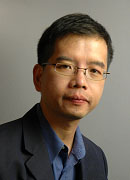
Associate Professor
Academy of Visual Arts
Hong Kong Baptist University
BIOGRAPHY
Dr. Victor Ming Hoi Lai
Dr. Victor Lai completed his BEd at Liverpool, and has gained an MA at Royal College of Arts and a PhD at Lancaster University. He has gained numerous awards including Postgraduate Fellowship from the British Council, Overseas Research Scheme, Milner Kite Scholarship, Winslade Bursary Scholarship, John Milton Scholarship, Starr Foundation Fellowship from Asia Cultural Council, honourable mention grant from Vermont Studio Centre and artist-in-residence grant from Red Gate Gallery and the Hong Kong Arts Development Council.
Dr. Lai worked as Creative Director in renowned advertising companies, and has been working for a range of local and regional organisations. He was the Head of Department of Creative Arts and Physical Education of the Hong Kong Institute of Education (HKIEd), the president of Hong Kong Society for Education in Art, the Chief Examiner of the Hong Kong Examinations and Assessment Authority, one of the adjudicators for the Hong Kong Art Biennial Exhibition 2005, a member of the assessment panel on the Arts Education Key Learning Area of the Chief Executive's Award for Teacher Excellence, vice chairman of the art education section of Hong Kong Art Development Council, as well as the external examiner and advisor for several local tertiary institutions. Prior to the appointment at Hong Kong Baptist University, Dr Lai was an Associate Professor and Associate Department Head of Department of Cultural and Creative Arts of the HKIEd.
Work Creatively: Facilitating Knowledge Transfer in Arts and Cultural Sector
ABSTRACT
Work Creatively: Facilitating Knowledge Transfer in Arts and Cultural Sector
The word "creativity" appears to be a cliché as it may be a self-contained term on what it is about and how may that be achieved. To do and to think creatively means one has to alter and enhance what we have in our existing realm. That is what we need, however, when the situation and structure of economy differs from what we have had before. That is also when the concept Knowledge Transfer comes into place, by allowing us as artists or art practitioners to think outside the box. Indeed, most people reckon that we, as art practitioners, experience no difficulty in expressing and creating; it may however be a myth on how we could sustain our creativity.
As a participant of two Knowledge Transfer Partnership (KTP) projects, I shall share my thought on the importance of art. It is not a mere out-of-reach interest, rather it is related closely to various industries in our community, may it be light source or shopping malls. Our projects are not just about artistic expressions and values, it is more of how we as artists or art practitioners contribute to the industry concerned, which we are in turn enlightened by the art of living and living up an artistic life.
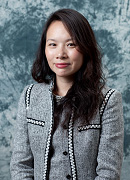
Assistant Dean (student affairs)
Faculty of Medicine
Associate Professor
School of Pharmacy
The Chinese University of Hong Kong
BIOGRAPHY
Professor Vivian Wing Yan Lee
Dr. Vivian Lee is currently the Associate Professor of the School and Assistant Dean (Student Affairs) of the Faculty of Medicine. Before her current appointment, she had worked as a hospital clinical pharmacist at Cedars-Sinai Medical Center, in Los Angeles, USA. Dr. Lee received her bachelor of sciences degree in Biochemistry at the University of California, Los Angeles (UCLA) and her doctor of pharmacy degree in the School of Pharmacy, University of Southern California (USC). She had pursued post-doctoral training in Pharmacy Practice residency at the Huntington Memorial Hospital in Pasadena, USA.
Dr. Lee is dedicated for the clinical pharmacy development. She started the first clinical pharmacy clerkship program in Hong Kong as well as the overseas student exchange in clinical pharmacy with USC at CUHK. In addition, she tries to expand the roles of pharmacist through various innovative ways including the launch of the first interactive online drug information platform in Hong Kong-Ask My Pharmacist Online University Led drug Enquiry Platform (AMPOULE), the Paediatric Health: easy Access Resources on Medicines (PHARM) and the community pharmacy outreach program to cope with the demands of pharmaceutical care to improve medication adherence and chronic disease management in elderly patients of Hong Kong.
Knowledge Transfer: Commitment to Public and Partnering for Excellence
ABSTRACT
Knowledge Transfer: Commitment to Public and Partnering for Excellence
Drug-related questions are often encountered by people who are on medication or taking health supplements. However, due to various barriers, these questions remain unresolved which lead to possible medication problems. The Outreach Programme organized by the School of Pharmacy showed that more than half (55.3%) of the drug-related problems discovered in the elderly population were associated with lack of knowledge about their medication and their state of disease. Furthermore, sensitive medical issues, such as sexually transmitted diseases, erectile dysfunction, use of contraceptive etc., are not widely discussed among the public. With increasing popularity of self-medication as the first-line treatment for mild diseases, together with the lack of drug knowledge, it is expected that more drug-related questions would arise in the future.
In response to the expected drug information demand, a new online interactive drug enquiry system called AMPOULE (Ask My Pharmacist! - Online University-Led drug Enquiry) Platform was established. Through AMPOULE, pharmacists will provide personalized suggestions to drug-related queries, hoping to reduce possible medication problems faced by the general public. We target to enhance communication between pharmacists and the general public through innovative channels. The demand of drug information is expected to rise with more knowledge and well-educated enquires. Enquirers expect fast and efficient professional assistance for their drug-related problems. The traditional pharmacist consultation in the pharmacy may not be sufficient to fulfill enquirers' demands. It is hoped that the public awareness in proper medication use and drug safety can be enhanced by providing proper drug knowledge, thus improving the overall effectiveness of drug treatment. In this presentation, the following objectives will be achieved:
- Experiences in developing online drug information platform will be shared;
- Factors affecting success knowledge transfer will be discussed;
- Address the areas for partnership in knowledge transfer to ensure medication safety.
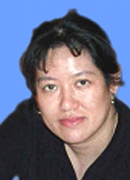
Assistant Professor
Academy of Visual Arts
Hong Kong Baptist University
BIOGRAPHY
Dr. Mee Ping Leung
Dr. Leung Mee-ping completed her BFA at L'Ecole Nationale Superieure des Beaux-Arts a Paris, France, and has gained an MFA at California Institute of the Arts, LA, U.S.A. and a PhD at Chinese University of Hong Kong (Religious & Cultural Studies). She has received numerous awards including Civitella Ranieri Fellowship, Starr Foundation Fellowship and Hong Kong Art Biennial Award. Her art works have become permanent displays in many prominent locations and are collected by major world class art collectors.
Besides theoretical research on visual culture related to creative industry, contemporary art, traditional handicraft and transformation, Dr Leung has also work on mixed-media, video, multi-media installation and site-specific event-based projects. Her recent cross-sectoral projects attempt to extend her creative arts disciplines such as theatre, drama, and space saving design as well as the development of traditional handicraft.
Community Arts Development---Multiple Knowledge Transferring of Inter-School
ABSTRACT
Community Arts Development---Multiple Knowledge Transferring of Inter-School
"Better Community, Better Life" initiated by Hong Kong British Council's Connecting Classrooms, is a program of co-operation with Hong Kong Baptist University Academy of Visual Arts, which has been carrying out community art creation in six secondary schools for nearly a year. The project has developed an inter-school community art creation which is based on multiple concepts of knowledge transfer. Not only has it retained the objectives of knowledge transfer that enables the knowledge of visual arts to be extended and stretched out diversely, but also realized the interaction between schools and community culture and discovered the new functions of schools within a community and their dialogues. This report will go through the details of this project, as well as the conceptual process of knowledge transfer and its consequences within the participating schools.
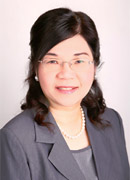
Assistant Professor
Department of Curriculum and Instruction
Director
Centre for Enhancing English Learning and Teaching
The Chinese University of Hong Kong
BIOGRAPHY
Professor Barley Shuk Yin Mak Chan
Prof. Mak has been training primary and secondary English language teachers at the undergraduate and postgraduate levels in Hong Kong and overseas for many years. She is the founding Programme Director of the M.A. in English Language Teaching and has been working on a strategic plan to launch an Ed.D in English Language Teaching. Her publications have appeared in internationally referred journals, for example, Educational Review, English Language Teaching Journal, Language Testing and System.
Prof. Mak is the founding Director of the Centre for Enhancing English Learning and Teaching. She has conducted various public-funded research projects (e.g., the Quality Education Fund, the Language Fund, Hong Kong Education City funding). Since 2001, she has secured over HK$37,000,000 external funding for her research projects (of which over HK$28,000,000 has been in the capacity as the principal investigator). She is now conducting the New Senior Secondary Curriculum Implementation Study 2011 and the Curriculum Survey on Primary Education 2011 commissioned by the HKSAR Education Bureau.
Barley Mak has served on a number of prominent HKSAR teacher education committees, for example, the Task Force on Language Benchmark Training Arrangements (English) of the Advisory Committee on Teacher Education and Qualifications and various committees for the Chief Executive's Award for Teaching Excellence. She is currently a Member of the Focus Group (English Language) for the Development of Depository of Curriculum-based Learning and Teaching Resources and a Panel Expert of the Refined English Enhancement Scheme.
Building a Young Writer Community: A Knowledge Transfer Writing Project in Hong Kong
ABSTRACT
Building a Young Writer Community: A Knowledge Transfer Writing Project in Hong Kong
The integration of language arts into the English curriculum has been strongly advocated in recent years by the Education Bureau (EDB) in Hong Kong as part of the school curriculum reform. As outlined in English Language Education: Key Learning Area Curriculum Guide: Primary 1 to Secondary 3 (2002), schools are encouraged to use literary or imaginative texts more to promote critical thinking, free expression and creativity.
To support the above curriculum reform, a university-school partnership programme is proposed for nurturing young short story writers in secondary schools in Hong Kong.
Through this partnership programme, English teachers from participating schools are trained by experienced facilitators on how to motivate and guide their students through the process of writing short stories in a positive context. Subsequently, students are encouraged to write collaboratively. Participating teachers are also encouraged to exchange ideas and make enquiries in an on-line forum supported by the Centre for Enhancing English Learning and Teaching (CEELT).
To celebrate students' creative efforts and reinforce their practices in this form of language arts, a short story anthology will be published for each participating school. A short story writing competition will be organised and the outstanding short stories will also be published, and sent to all secondary schools in Hong Kong and via a dedicated e-gallery. This presentation will describe how the project is executed to actualize the knowledge transfer among CUHK and the participating schools.Reflections and experiences of the participating teachers and students as well as sustainability of projects of such kind will also be discussed.
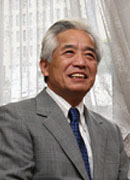
Professor, Ph.D.
Vice President
Kobe University
Director
Center for Collaborative and Technology Development (CREATE)
BIOGRAPHY
Professor Chiharu Nakamura
Prof. Chiharu Nakamura, awarded DOCTOR HONORIS CAUSA from Agricultural Academy of Republic of Bulgaria in 2010, is currently the vice-president of Kobe University and director of Center for Collaborative Research and Technology Development (CREATE) where university's major corporate partnerships are handled. As one of the professionals in plant genetics, he received the BS at Kyoto University (1974) and later achieved the MS (1976) and PhD (1970) at Colorado State University, USA. In addition, he also experienced post-doctoral fellow at Ottawa Research Station in Canada during 1979-1981.
Prof. Nakamura's academic career started in 1981, at the time he returned to Japan and became assistant professor in the Faculty of Agriculture at Kobe University. Since then he has continuously contributed at Kobe U, as from the professor to the Dean of Graduate School of Agricultural Science, publishing more than 170 papers in peer-reviewed international journals and achieved in a wide and diverse dimension including academic and management sector at the university. In 2009, after serving as Director of Radioisotope Research Center and Research Center for Environmental Genomics, Prof. Nakamura was elected the vice-president of Kobe University, mainly responsible on university's international relations as well as corporate partnerships. He is currently leading innovative teams in CREATE and Kobe U, with aim of driving university's external partnerships and engagement forward for greater social contribution.
Boosting Industry-University Partnership by Academic Collaboration
ABSTRACT
Boosting Industry-University Partnership by Academic Collaboration
We are now living in the "knowledge- and technology-based society", which is rapidly globalizing and inevitably requires effective systems of knowledge and technology transfer. In this context, mission of today's academic institutions is to contribute, through creation and dissemination of innovative knowledge and technology, to business/industry world. One unique feature of the knowledge and technology transfer system in Japan is the concerted collaboration among academia, business/industry and government. This system was inaugurated and strengthened in the 1990s by the enforcement of the "Law of Promoting University-Industry Technology Transfer "in 1998 and the "Law on Special Measures for Industrial Revitalization (Japanese version of the Bayh-Dole Act in USA)" in 1999. In 2004, 86 national universities in Japan have become corporatized. Corporatization consequently promoted reformation of national universities, which became equipped with a leading initiative in the strategic management of their corporate activities. Since then academia-industry-government collaboration in Japan has become more diverse and grown enormously under specialized approaches, though with many problems waiting for elaborate solutions. In this presentation, we deliver a brief introduction of Kobe University's strategies on building industry collaborations. Particular emphasis will be put on our efforts towards building multi-bilateral collaborations among partner universities and research/educational institutions with common interests both in the local and global context. Our presentation explores Kobe University's approach with a vision of "boosting corporate partnerships via academic collaborations". It hopefully offers you a comprehensive and easy access to real situations of national universities in Japan including Kobe University in the post-reform era, with several informative sample cases.
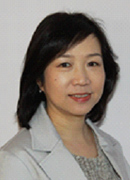
Head/ Associate Professor
Department of Science and Environmental Studies
The Hong Kong Institute of Education
BIOGRAPHY
Professor Winnie Wing Mui So
Professor Winnie Wing-mui SO obtained her PhD from the University of Hong Kong. She is currently the Head of the Department of Science and Environmental Studies at The Hong Kong Institute of Education where she teaches Postgraduate Diploma, Master of Education, Doctor of Education, and PhD in Science Education, General Studies and/or Liberal Studies. Professor So's main research areas are inquiry learning in Science/ General Studies/ Liberal Studies, integrating IT in Science/ General Studies/ Liberal Studies, project-based learning and teacher development. She has been the principal investigator of various research grants from the General Research Fund, Quality Education Fund, and the Education Bureau. Internationally, she is currently an executive member of the World Education Research Association. Locally, she has been appointed member of the Humanities and Social Science Panel of the Research Grants Council of Hong Kong. She also serves in the Curriculum Development Committees on Science Education and Liberal Studies of the Curriculum Development Institute.
Enhancing Teacher Professional Development through Professional Dialogue: An Investigation into a University-school Partnership Project on Enquiry Learning
ABSTRACT
Enhancing Teacher Professional Development through Professional Dialogue: An Investigation into a University-school Partnership Project on Enquiry Learning
In pursuit of professional development, teachers are encouraged to participate actively in professional dialogue. It has been shown in the literature that professional dialogue allows teachers to converse about the challenges in their workplace, brainstorm solutions, share experiences, and consider alternative teaching approaches. Based on a two-year university-school partnership project on enquiry learning, this study aims at empowering teachers to cultivate students' ability in enquiry learning through professional dialogue. School visit reports, final reports of the project, lesson observation reports, and semi-structured interviews carried out at the end of the project were analyzed. The findings show that the university support team created the fundamental basis for professional dialogue by conveying information regarding enquiry learning, introducing new pedagogies, conducting lesson observations, and reviewing school-based teaching materials. In addition, the support team sustained the dialogue by promoting collaborative work, including analyzing students' assignments and configuring ways to address diverse student needs with the teachers. Given the stimulations through professional dialogue, teachers involved in this study were able to familiarize themselves with enquiry learning and to gain confidence in adopting new pedagogies to facilitate student learning.
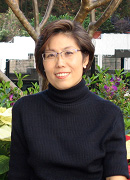
Chairman
Department of Linguistics and Modern Languages
Centre Director
Centre for Sign Linguistics and Deaf Studies
Department of Linguistics and Modern Languages
The Chinese University of Hong Kong
BIOGRAPHY
Professor Gladys Wai Lan Tang
Prof. Gladys Tang is the Founding Director of the Centre of Sign Linguistics and Deaf Studies since its establishment in 2003. She also served as Chairperson and Division Head of the Department of Linguistics and Modern Languages until July 2011. She received her PhD in Applied Linguistics from the University of Edinburgh, United Kingdom. Her research interests are language acquisition, in particular signed and spoken language acquisition of deaf children, sign linguistics and deaf education, and applied linguistics. She has published about second language acquisition, second language pedagogy, sign linguistics, signed and spoken language acquisition of deaf children, and deaf education. She is also the anonymous reviewer for books, journals, conference proceedings and distinguished theses. Examples of such venues include Theoretical Issues of Sign Language Research, Bilingualism: Language and Cognition, Journal of Deaf Studies and Deaf Education, Journal of Contemporary Linguistics, Language and Linguistics, Lingua, Sign Language and Linguistics, Cambridge University Press, John Benjamins Press, Lawrence Erlbaum, Mouton de Gruyter, etc.. She is the Asian Liaison of International Association of Sign Linguistics and member of the Advisory Board of the same organization. She is on the editorial board of the journal of Sign Language Typology. She has contributed her service to the community by being a member of PEN-International, a consultant for the UNICEF Project on Bilingualism and Biculturalism in Deaf Education in China (2006-2011).
The Jockey Club Sign Bilingualism and Co-enrolment in Deaf Education Programme: From Sign Linguistics to Inclusive Deaf Education
ABSTRACT
The Jockey Club Sign Bilingualism and Co-enrolment in Deaf Education Programme: From Sign Linguistics to Inclusive Deaf Education
Professor Gladys Wai Lan Tang
Chairman, Department of Linguistics and Modern Languages; Centre Director, Centre for Sign Linguistics and Deaf Studies, Department of Linguistics and Modern Languages, The Chinese University of Hong Kong
Professor Scholastica Wai Sze Lam
Research Assistant Professor, Centre for Sign Linguistics and Deaf Studies, Department of Linguistics and Modern Languages, The Chinese University of Hong Kong
Mr. Chris Kun Man Yiu
Senior Programme Officer, Centre for Sign Linguistics and Deaf Studies, Department of Linguistics and Modern Languages, The Chinese University of Hong Kong
Sign linguistics research aims to identify ways to examine how sign languages is structured as a natural language and how it is acquired by deaf children. To date, a significant research outcome is that early acquisition of sign language supports deaf children in becoming 'sign bilingual' (i.e. proficient in a signed and a spoken language). Such bilingual knowledge in turn facilitates their literacy development in spoken language as well as deaf education. While this understanding is gaining grounds in many parts of the world, its lack is the norm in Asia. As a result, educators and parents of deaf children are still harping on the misconception that the oralist approach (i.e. learning through residual hearing and speech) is the only way to resolve the problem in deaf education.
In HK, unique research efforts into various lines of sign linguistics research have paved the way for applying this new-found knowledge to an experimental programme "The Jockey Club Sign Bilingualism and Co-enrolment in Deaf Education Programme (JC-SLCO Progamme). The Programme represents an unprecedented attempt in Asia to incorporate natural sign language into an inclusive education setting. It aims to maximally utilize the linguistic resources of both signed and spoken language provided by hearing and Deaf teachers in educating deaf as well as hearing children under the same educational environment following the same syllabus. Most important of all, the Programme will inform the community that the model lives up to the philosophy of inclusive deaf education: both hearing and deaf children have the benefits of being sign bilingual, and hearing children will come to appreciate the special educational needs of deaf children who in turn grow up understanding the values and culture of the majority hearing society. In this paper, we will present how sign linguistics research in HK has led to the establishment of a programme that nurtures successful school partnership between researchers at university, professional teacher trainers at teacher training institutions, parents of deaf and hearing children, government units, deaf organizations and NGOs in the local community.
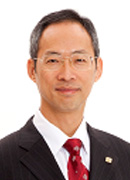
Vice President (Research Development)
The Hong Kong Polytechnic University
BIOGRAPHY
Ir. Professor Alex Wai
Ir Professor Ping-kong Alexander Wai is Vice President (Research Development) of The Hong Kong Polytechnic University (PolyU). He received the BSc(Hons) degree from the University of Hong Kong, and the MS and PhD degrees from the University of Maryland, College Park, USA. After graduation, he joined Science Applications International Corporation in McLean, VA, where he worked on the Tethered Satellite System project – a joint United States-Italy Space Shuttle mission. Later, he worked in the Electrical Engineering Department of the University of Maryland, Baltimore County, USA. He joined PolyU in 1996. Between 2002-10, Professor Wai served as and Head of Department of the Electronic and Information Engineering, Dean of Faculty of Engineering, and Associate Vice President. Currently, he is Chair Professor of Optical Communications.
His research interests include optical fiber communications and optical networks. Prof. Wai is an active contributor to the technical field, having over 150 refereed international journal publications. He has contributed to the organization, served an invited speaker and keynote speakers of many international conferences. Professor Wai is Associate Editor of Optics Express. He is a fellow of Optical Society of America and Hong Kong Institution of Engineers and a Senior member of IEEE.
Capturing Research Value with Application
ABSTRACT
Capturing Research Value with Application
The vision of PolyU is to be a leading University that excels in professional education, applied research and partnership for the betterment of Hong Kong, the nation and the world. The University devotes a great deal of effort to research. PolyU is a place where innovation meets application. Our research is meant to serve the practical needs of society.
PolyU's ability to transfer cutting edge knowledge to industry and business has led to numerous life-changing inventions and innovations which have reaped international awards. Many of them have been put to good use benefitting the community. A vast range of researches and technologies have found their place in the real world, including aerospace, infrastructure, engineering, textile, biotech and healthcare.
Over the years, PolyU has lined up many successful partnerships with business and industry in Hong Kong and the Chinese Mainland through the University's high impact research projects, creating great societal impetus and strategic significance for the nation. In this speech, Prof. Wai will present a number of cases, demonstrating how PolyU has successfully captured research value with application. These include: National and International Space Programs, China High Speed Railway Monitoring System, novel multi-potent anti-cancer drug, etc. These home-grown innovations are of high relevance to the community, at the same time, it illustrates well how Hong Kong can contribute to advancement of frontier technologies through academic knowledge transfer.

Head/ Chair Professor
Department of Education Policy and Leadership
The Hong Kong Institute of Education
BIOGRAPHY
Professor Allan Walker
Professor Allan WALKER is the Joseph Lau Chair Professor of International Educational Leadership at The Hong Kong Institute of Education. He has designed and implemented multiple leader learning programmes for school leaders in Hong Kong and across the region. These programmes are recognized internationally and have engaged thousands of local, regional and international school leaders. He has been consultant/advisor on large-scale research and development projects in more than 20 countries in Asia-Pacific Region, Europe and North America. He is co-editor of the Journal of Educational Administration, one of the top journals in the field, serves on the boards of numerous top ranked journals and has published over 300 books, chapters and journal articles. He is known internationally for his passion for school leadership, innovative approaches to development and to disseminating regional understandings of school leadership in the West.
Seeding Sustainable Leader Learning Communities
ABSTRACT
Seeding Sustainable Leader Learning Communities
This paper details a concerted strategy to design, implement and embed school leadership learning communities as a way of improving education leadership and school improvement. Given the impact of school leaders on school and student outcomes, the paper holds that knowledgeable, ethical and connected leaders are a key ingredient in any improvement effort. The philosophy underpinning a suite of programmes for local and international educators holds that to be worthwhile, learning must be context-based and context-placed; and focus on building enduring learning networks, not simply on the transmission of established knowledge. For this to happen, strategies must adapt to fluid school realities and disentangle traditional learning hierarchies and institutional boundaries. Design strategies combine: respect for new and emerging knowledge, 'flexibility within structure', individual and group responsibility and participation, inquiry learning, an ethical focus and holding a future-orientation. The paper will outline an initiative designed for leaders of international schools. Ongoing research into completed programmes provides a number of useful insights for making sustainable leadership learning networks work and for planning their further spread.
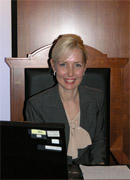
Associate Professor
Department of Professional Legal Education
The University of Hong Kong
BIOGRAPHY
Professor Amanda Whitfort
Amanda Whitfort is an Associate Professor in the Department of Legal Education, Faculty of Law, The University of Hong Kong and a member of the Hong Kong Bar. She has extensive experience in criminal prosecution work and acts on fiat for the Hong Kong Department of Justice. She holds an LLM from The University of London and trained as a lawyer in Australia where she prosecuted for the Victorian Office of Public Prosecutions. She is a member of the Society for the Prevention of Cruelty to Animals Law Reform Committee and the AFCD's Animal Welfare Advisory Group's Legal Working Party. Her research interests include criminal justice and administration and environmental law, both of which she currently teaches at the University of Hong Kong. She is the leading legal authority on animal welfare in Hong Kong.
The Review of Hong Kong's Animal Welfare Laws
ABSTRACT
The Review of Hong Kong's Animal Welfare Laws
From 2007-2009, the Central Policy Unit of the Hong Kong Government and the Research Grants Council funded the authors to conduct a comprehensive review of Hong Kong's animal welfare legislation. Hong Kong's animal welfare laws were drafted in the 1930's and a review of current law was timely. Media publicity had focused on increasing public concern as to the adequacy of legislation available to address cases of cruelty to animals and the government is currently under pressure to update legislation.
In the course of the two year review, the authors identified that Hong Kong's anti cruelty legislation, as currently drafted, is unable to assist animals in danger and distress. The authors found licensing conditions for pet shops seriously out of date with modern welfare science and a lack of legislation controlling hobby breeders allowing animals of dubious origin and health to be widely sold throughout the Territory.
The authors also uncovered serious failures, at local slaughterhouses, on farms and in live food wet markets to meet animal welfare standards prescribed by the OIE Terrestrial Animal Health Code 2009 (Slaughter of Animals), to which China is a signatory.
The review has now been released and is being studied by the Hong Kong government, with the view to reform. The primary author will discuss the review findings and recommendations for extensive amendment to laws, regulations and codes of welfare affecting animals in Hong Kong.
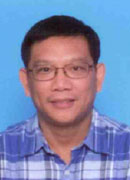
Professor
Department of Applied Social Studies
City University of Hong Kong
BIOGRAPHY
Professor Daniel Fu Keung Wong
Professor Daniel Fu Keung Wong is a social work academic at the Department of Applied Social Studies, City University of Hong Kong. Professionally and academically, Professor Wong is a qualified cognitive therapist and conducts evidence-based research in indigenizing clinical intervention approaches in working with people with mental health concerns. His knowledge transfer activities revolve around: providing training to frontline health care professionals to deliver cognitive behavioural therapy to clients with mental health problems and running public health care prevention programmes and groups for people with mental health concerns. He has also written a number of self-help books and worker's manuals in Chinese for frontline health care workers and the general public in Hong Kong. Currently, he is the coordinator of Knowledge Transfer Committee of the College of Humanities and Social Sciences, City University of Hong Kong.
Knowledge Transfer in Humanities and Social Sciences: What Are They?
ABSTRACT
Knowledge Transfer in Humanities and Social Sciences: What Are They?
One question that often baffles scholars in the fields of social sciences and humanities is: what constitutes a knowledge transfer activity in these fields? In sciences, knowledge transfer activities may involve the design of a product which has high commercial values and may in turn resulting in patenting and licensing of the product. In humanities and social sciences, the object of the transfer is not necessarily a tangible product. Instead, it may take the form of a contribution that helps develop and improve services, decision-making processes, and cultural events and products. Indeed, many of these activities revolve around the provision of advice, through consultancies and informal communications. In this presentation, drawing on the knowledge transfer activities of the College of Humanities and Social Sciences, City University of Hong Kong, the author would cite examples of the activities to illustrate the possible parameters of knowledge transfer in humanities and social sciences. Specifically, it aims to delineate the possible nature, processes and outcomes of knowledge transfer activities in humanities and social sciences. In addition, it also attempts to highlight the difficulties academics face while engaging in knowledge transfer activities in humanities and social sciences in educational institutions in Hong Kong.
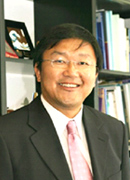
Associate Dean (External Affairs)
Faculty of Engineering
Professor
Department of Systems Engineering and Engineering Management
Associate Director
Centre for Entrepreneurship
Director
Centre for Innovation and Technology
The Chinese University of Hong Kong
BIOGRAPHY
Professor William Kam Fai Wong
K.F. Wong obtained his PhD from Edinburgh University, Scotland, in 1987. He has been a post-doctoral researcher in Heriot-Watt University (Scotland), UniSys (Scotland) and ECRC (Germany). At present he is the Associate Dean (External Affairs) of the Faculty of Engineering, a professor in the Department of Systems Engineering and Engineering Management, and the Director of the Centre for Innovation and Technology (CINTEC), of the Chinese University of Hong Kong (CUHK). As the Director of CINTEC, he is responsible for technology transfer and industrial liaison. Academically, his research interest centers on Chinese computing, parallel database and information retrieval. He has published over 200 technical papers in these areas in various international journals and conferences and books. Professionally, he is a fellow of BCS, IET, HKIE and HKITJC. He received the Medal of Honour (MH) from the HKSAR Government in July 1, 2011 for his contribution to the local Hong Kong IT industry. He is currently the President of the Hong Kong IT Joint Council. He also serves as the Chairman, ICT Advisory Committee, HK Scout Association, member of Digital 21 Advisory Committee (2008-2010, 2010-2012), vetting committee member of Innovation Technology Commission's SERAP programme, SMC member of Lam Tai Fai College, SMC member of Tang Sui Kin Victoria Secondary School, board member of HK Internet Registration Company (2008-2009) and chairman of HK IT Sector 59th National Day Celebration Gala Dinner Organization Committee.
The Roles of Hong Kong in the National Twelve Five Year Strategic Plan
ABSTRACT
The Roles of Hong Kong in the National Twelve Five Year Strategic Plan
The Chinese's National Twelve Strategic Plan (abbreviated 12.5) has been announced in the 2011Q2. It defines the directions and missions of the development of China in the coming five years 2011-2015. Innovation and technology are one of the key investment targets. For this, it is the goal of the Chinese Central Government to raise the R&D to GDP ratio from the currently 1.7% to 2.2% in 2015. Hong Kong has three local universities ranked within top 100 in the QS world ranking. They are also within the best in engineering and medical research. In view of this, how can Hong Kong contribute to the implementation of the 12.5 plan. In this talk, the advantages and hence the roles of Hong Kong for this purpose are identified.
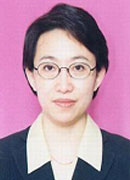
Director
Technology Transfer Center
Vice President
HKUST R and D Corporation
General Manager
HKUST R and D Corporation (Guangzhou) Limited
The Hong Kong University of Science and Technology
BIOGRAPHY
Dr. Claudia Xu
Dr. Claudia Xu is Director of Technology Transfer Center at the Hong Kong University of Science and Technology (HKUST), with responsibilities for the University's intellectual property management, patent portfolio development, patent licensing, academic-industrial collaboration, technology commercialization and entrepreneurship program. She also serves as Vice President of the HKUST R and D Corporation and General Manager of the HKUST R and D Corporation (Guangzhou) Limited, which are the two commercial arms of the University in Hong Kong and China respectively.
Dr. Xu's career has spanned over 20 years in management consulting, strategic planning, business development, and management and commercialization of high-value university research outputs and technologies. She started her career with the provincial Science and Technology Bureau in China. Prior to joining HKUST, Dr. Xu first worked for McKinsey & Company (Hong Kong) as Energy Specialist engaged in the energy, chemical and petrochemical, and utility sectors. She then moved to Bechtel (Asia Pacific) as a Strategic Planning Manager and subsequently as Business Development Manager, where she was involved in the development of large size infrastructure projects in the region.
Dr. Xu received a BEng and Ph.D. in Chemical Engineering, and a MEng in Energy Technology.
Building Mainland China Partnerships at HKUST
ABSTRACT
Building Mainland China Partnerships at HKUST
Hong Kong stands in the unique position of a truly international city linking the East and the West and is a strategic gateway to Mainland China. Similarly, the Hong Kong University of Science and Technology (HKUST) has established global distinction as a research university with highly international orientation in focus, reach and impact, while at the same time has been actively pursuing opportunities to participate in the Mainland research schemes and collaborations with various Mainland organizations ranging from public to private sectors.
As of today, there have been over 50 collaborative arrangements with various universities and research institutes in the Mainland. The University formed early links with Shenzhen through an alliance in 1999 with Peking University and the Shenzhen Municipal Government leading to the establishment of the Shenzhen Industry, Education and Research (IER) Base and the Shenzhen PKU-HKUST Medical Center. With the support of the Shenzhen Municipal Government, HKUST opened its new research base in Shenzhen on 22 September this year, which marks another milestone in HKUST's development in the Mainland.
In Nansha of Guangzhou City, the HKUST Fok Ying Tung Graduate School was formed as the fifth school of HKUST in January 2007 with the mission to foster research and technology advancement and provides education through PG program, academic exchange and professional training.
Other collaborations in the Mainland include the Zhejiang Institute for Advanced Materials in Hangzhou City and Foshan LED Technology R&D Center in Foshan City, with which HKUST has established platforms for research, innovation, and technology transfer, along with training for local entrepreneurs. Private sector collaborative efforts include the Huawei-HKUST Innovation Lab set up on the HKUST campus, funded by world-leading telecoms solution provider Huawei Technologies.
Fostering these diversified links is an important part of our strategic outlook and mission at HKUST. Working together with our Mainland partners can complement each others' strengths to energize regional development in order to achieve win-win situation for innovation and strategic R&D development in the long run.
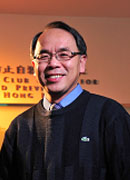
Professor
Department of Social Work and Social Administration
Director
Hong Kong Jockey Club Centre for Suicide Research and Prevention
The University of Hong Kong
BIOGRAPHY
Professor Paul S.F. Yip
Professor Yip is the director of the HKJC Centre for Suicide Research and Prevention and a Professor of Social Work and Social Administration at The University of Hong Kong. He is a national representative of the Hong Kong SAR for the International Association of Suicide Prevention (IASP) and a vice-president of the International Association of Suicide Research, a consultant for Beijing Suicide Prevention Services, a board member for Suicide Prevention Service (Hong Kong). He has done innovative suicide prevention work in restricting means of charcoal in a community-based exploratory study. He is a pioneer in developing sophisticated surveillance system in monitoring and estimating suicide rate. He has received the Outstanding Researcher Award, The University of Hong Kong in 2009, a Distinguished Alumni Award, and La Trobe University in 2008 for his excellent research and service on population health. He is also a recipient of an Excellent Research Award "Charcoal Burning Suicide" by the Health and Welfare Bureau of Hong Kong SAR Government, 2007 and a Silver Asian Innovation Award, by Asian Wall Street Journal and Singapore Economic Development Board, 2005.
A Public Health Approach for Suicide Prevention: from Research to Practice
ABSTRACT
A Public Health Approach for Suicide Prevention: from Research to Practice
Traditionally, suicide has been viewed as a mental health issue best addressed primarily through clinical interventions, especially through the treatment of depression. However, it has been found that the majority of people who committed suicide had not received psychiatric services prior to death. Furthermore, in view of the size of the problem and the limited resources, the medical and clinical model involving intensive professional care service might not be practical in Asia. In our daily lives, stopping people from reaching the edge of a cliff is always easier than trying to save them when they are on the edge. In the same sense, drug-clot busters might be useful in providing temporary relief for those who suffer from cardiovascular diseases, but this is not as cost-efficient or cost-effective as a healthy diet and routine exercise for the population as a whole. The public health approach to suicide prevention shares the same vision. By using information and knowledge generated from research studies, a multilayer intervention, holistic and integrated approach together with community collaboration, we can make a difference.
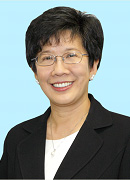
Vice President (Institutional Advancement and Partnership)
The Hong Kong Polytechnic University
BIOGRAPHY
Professor Angelina Yuen
Prof. Angelina Yuen is currently Vice President (Institutional Advancement and Partnership) of The Hong Kong Polytechnic University where she has served since 1986.
Angelina holds a Bachelor's degree in social work, a MSW, a MEd. and a PhD degree from Hong Kong, Canada and U.K. Her research interests and areas of specialism are mainly on social support networks and community care, social work education, social work practice in China, corporate social responsibility and occupational social work.
Angelina was President of the Hong Kong Social Workers Association and is serving/served as Board Member of numerous Government commissions and NGOs, including the Social Workers' Registration Board, Hong Kong Council of Social Service, Advisory Committee on Social Work Training and Manpower Planning, Hong Kong Press Council, Commission on Strategic Development, and has been appointed Justice of Peace since 2002 and further awarded a Bronze Bauhinia Star by the Hong Kong SAR Government in 2008.
Angelina has helped to spearhead social work education in China since 1988 and has played a key role in the development of social work education in the Chinese mainland. She is also actively engaged in various international organizations.
Angelina has been elected as President of the International Association of Schools of Social Work (IASSW) since July 2008.
Establishment of the PolyU Shenzhen Base as a Strategy to foster Industry-University Partnership in the Pearl River Delta
ABSTRACT
Establishment of the PolyU Shenzhen Base as a Strategy to foster Industry-University Partnership in the Pearl River Delta
The Hong Kong Polytechnic University Shenzhen Base (the PolyU SZ Base) is a strategic move of PolyU to engage in education, research, knowledge transfer and commercialization of its outcomes targeting at the needs of Hong Kong, Shenzhen and the Pearl River Delta (PRD). The Base builds on PolyU's strengths in applied research, its pioneering experience in offering postgraduate award programmes in the Chinese Mainland, and its long-term connections with industries in the region. The SZ Base supports the strategic goal of PolyU to excel as a world-class applied university.
The mission of the PolyU SZ Base is to become the headquarter of PolyU in PRD and to provide one stop service for the region. The PolyU SZ Base is an interdisciplinary and multi-purpose platform where the research expertise, innovative power, knowledge transfer experience, education and executive development strengths of PolyU congregate to meet the challenges of the real world at one of the world's fastest growing economic regions.
The PolyU SZ Base will also serve as a one stop service centre for PolyU colleagues in PRD to develop research, consultancy, training and other professional endeavours. Through its support services, the PolyU SZ Base will facilitate academic colleagues to develop cutting-edge research projects in Mainland, to establish strategic partnership with renowned scholars and universities, to provide needed consultancy to businesses, industries and government bodies, and to secure national/regional research funds through the legal entity of the PolyU SZ Base.
In this speech, the speaker will present the mission and vision of the Shenzhen Base, its strategies and activities and the work in which PolyU Shenzhen Base foster industry-university partnership in the Pearl River Delta.
Chairpersons
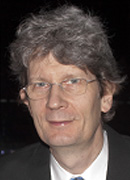
Associate Director
Knowledge Exchange Office, and
Associate Dean (Knowledge Exchange)
Faculty of Social Sciences
The University of Hong Kong
BIOGRAPHY
Professor John Bacon-Shone
John Bacon-Shone is currently Associate Director of the Knowledge Exchange Office as well as being Associate Dean (Knowledge Exchange) of the Faculty of Social Sciences, Director of the Social Sciences Research Centre, and Chairman of the Human Research Ethics Committee for Non-Clinical Faculties at The University of Hong Kong (HKU). He has taught at HKU for more than 30 years, including three years on secondment to the Hong Kong Government internal policy think tank and six years as the Dean of Social Sciences. He is an applied statistician by training with diverse research interests including Compositional Data Analysis, Environmental, Gambling, Health, Immigration, Population and Privacy Policy, Open Access and Telephone Survey Methodology.
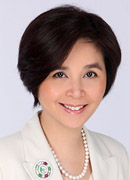
Professor
Department of Biology and Chemistry
Director
Office of Education Development and General Education
City University of Hong Kong
BIOGRAPHY
Professor Shuk Han Cheng
Prof Cheng Shuk Han received her BSc (Hons) from the University of Hong Kong (Major in Zoology and Minor in Biochemistry). She received her PhD from the Royal Postgraduate Medical School, which is now part of the Imperial College, University of London. Her PhD work was on the cellular immune response of BCG vaccination, under the supervision of Prof Denny Mitchison in the Department of Bacteriology, Hammersmith Hospital. She did her postdoctoral training under the supervision of Prof Tak Mak on molecular immune response of T cells at the Ontario Cancer Institute in Toronto. Before joining City University of Hong Kong in 1997, she worked in the Department of Paediatrics and Department of Orthopaedics and Traumatology at the Chinese University of Hong Kong.
She has won many innovation awards at international exhibitions, including the Gold Medal at the 35th International Exhibition of Inventions, New Techniques and Products of Geneva in 2007, and a total of 6 awards from the Korean International Women's Invention Expositions in 3 consecutive years from 2009 to 2011. She has published over 80 peer-reviewed research articles and some of them are among the Top 25 Hottest Articles in the Science Direct database. To date, she has supervised 19 graduate students, with 5 awarded PhD and 9 awarded MPhil. She is a member of the Editorial Boards of the journal Nanomedicine: Nanotechnology, Biology and Medicine and the journal Developmental Dynamics. She is an overseas Fellow of the Royal Society of Medicine (London). She also serves on the Board of Directors of Nano and Advanced Materials Institute Limited (NAMI) in Hong Kong.
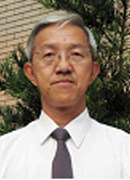
Professor
Department of Chemistry
The University of Hong Kong
BIOGRAPHY
Professor Allan S. C. Cheung
Professor Allan S. C. Cheung was educated in Canada and obtained his Bachelor of Science degree in 1977 from the University of Waterloo majoring in Chemistry and Mathematics. After obtaining his Ph.D. degree in physical chemistry from the University of British Columbia in 1982, he was appointed a postdoctoral fellow and later research associate at Harvard University. Since 1985 he has been working at the University of Hong Kong (HKU) and rose up the rank of lecturer, senior lecturer and then professor. Professor Cheung is currently a Professor in the Department of Chemistry at HKU. He served as the Head of the Chemistry Department between 1997 and 2000, and was an Associate Dean of Science between 2000 and 2011. Professor Cheung's research interests focus on molecular spectroscopy of small molecules and catalytic reactions of astrophysical significances using high resolution laser spectroscopy and time-of-flight mass-spectrometry techniques. He has published over 110 papers in high impact international journals. He has held visiting appointments at the Harvard-Smithsonian Centre for Astrophysics and was a Visiting Professor at the Universite de Provence in France. Professor Cheung also served in the Organizing Committee of the International Symposium on Molecular Spectroscopy. He has also been appointed as an Associate of the Harvard College Observatory since 1988. He is currently a member of the Curriculum Development Council on Science Education.
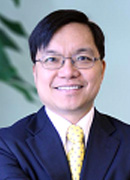
Director of Technology Transfer Office
The University of Hong Kong
BIOGRAPHY
Professor Paul Y.S. Cheung
Paul Cheung is the Director of Technology Transfer Office and Professor in the Department of Electrical and Electronic Engineering at the University of Hong Kong. He also serves concurrently as Associate Director of the Knowledge Exchange Office as well as Programme Director of the Master of Science in E-Commerce and Internet Computing in the University.
He joined the University of Hong Kong in 1980 and was Dean of Engineering from 1994-2000. He has worked as Corporate Senior Vice-President of Technology with PCCW, the largest telecommunication operator in Hong Kong, while on leave from the University, and was seconded to the Hong Kong Government as Policy Advisor of the Innovation and Technology Commission for over two years from 2002-04. He served as Lead Shepherd for the APEC Industrial Science and Technology Working Group (ISTWG) between 2004 and 2005. He was IEEE Asia Pacific Director in 1995-96 and IEEE Secretary in 1997. Since 2007, he is a Director of the IEEE Foundation, and is currently Vice-President (Projects) of the Foundation.
Professor Cheung received his B.Sc.(Eng) degree with First Class Honours and Ph.D. degree from the Imperial College, University of London, both in Electrical Engineering, in 1973 and 1978 respectively.
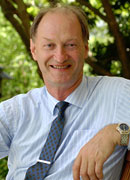
Pro-Vice-Chancellor and Vice-President (Infrastructure)
The University of Hong Kong
BIOGRAPHY
Professor John Malpas
Professor John Malpas is currently Pro-Vice-Chancellor and Vice-President (Infrastructure), and Chair Professor of Earth Sciences of the University of Hong Kong. He was first appointed Pro-Vice-Chancellor in December 2000 with the portfolio of planning and resources. Subsequently he has become responsible for University infrastructure and development. Professor Malpas has had oversight of the development, formulation and implementation of the University's Strategic Plan and its coordination with the Faculties and their Development Plans. Whilst still coordinating University-wide medium to long-term strategic projects, since September 2004, Professor Malpas has also taken up responsibility for University infrastructure and development, including IT and management information, estates, health, safety and sustainability issues. Hs is also a member of the HKU SPACE Planning and Development Committee, Board of Governors and Council of the HKU SPACE Centennial College. In the external bodies, Professor Malpas is a member of the University Grants Committee, and members of its General Affairs and Management Sub-committee, Higher Education Review Group, and Strategy Sub-committee, Education Bureau; chairman of the Strategic Positioning Review, The Hong Kong Academy for Performing Arts; director of the Asian Youth Orchestra and member of its Executive Committee; director and member of the Academic Council, Joint Quality Review Committee; member of the Central and Western District Sustainable Development Roundtable Advisory Committee; member of the Natural Sciences and Engineering Research Council of Canada Strategic Projects Grants Committee; and ambassador of the Newfoundland Economic Development Commission.
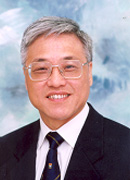
Pro-Vice-Chancellor and Vice-President (Research)
The University of Hong Kong
BIOGRAPHY
Professor Paul K. H. Tam
Professor Tam Kwong Hang, Paul, is the Pro-Vice-Chancellor for Research in The University of Hong Kong (HKU). He has also been the Dean of the Graduate School since 2009 and the Director of the Knowledge Exchange Office since 2010.
Professor Tam graduated from HKU in 1976, and worked in the Department of Surgery until 1986. He was Senior Lecturer at the University of Liverpool in 1986-90, and Reader and Director of Paediatric Surgery at the University of Oxford in 1990-96. He has been Chair of Paediatric Surgery at HKU since 1996.
Professor Tam is a well-known surgeon-scientist. His research group has published extensively in genomics, stem cell, immunology and Chinese medicine, and holds several patents. He has served on various local and international associations of the medical profession, as well as the editorial boards of several international journals.
He has received numerous awards including the British Association of Pediatric Surgery Prize, and most recently the "International Outstanding Leadership Award in Endoscopy" from National Office for Science and Technology, PRC in 2010.
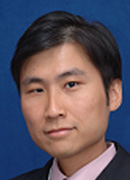
Head
Knowledge Transfer Office
Hong Kong Baptist University
BIOGRAPHY
Ir. Dr. Alfred Tan
Ir. Dr. Tan is an entrepreneur, an IP attorney, an engineer, a research scientist, an inventor and a university administrator all rolled in one. He started his career in academia before embarking to successfully lead his own technology startup. Ir. Dr. Tan has a number of patents to his name. He then returned to academia to further his career as a well published Professor in engineering and technology, both in Hong Kong and Australia. Ir. Dr. Tan is a Senior Member of IEEE and a member of Engineers Australia. He is also a registered Australian Trade Marks attorney and an often referenced patent consultant. In his spare time, Ir. Dr. Tan has a keen interest in financial analysis and business modeling. He is currently the Head of the Knowledge Transfer Office at Hong Kong Baptist University.
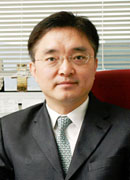
Vice President, Marketing and Sales
Hong Kong Science and Technology Parks Corporation
BIOGRAPHY
Mr. Andrew Young
Andrew Young has over 27 years of experience in engineering, management consulting and R&D commercialization. His diverse work experience covers defense, construction, electronics, plastics, automotive industry sectors and University technology transfer, both in Hong Kong and Australia. In his former consulting role, he has worked with many companies on strategic planning, development of marketing plan, process improvement and product development strategy.
He held the Director of Partnership Development at The Hong Kong Polytechnic University for 12 years and has built up an extensive network between the researchers and industry locally, nationally and overseas. He is a seasoned knowledge transfer professional and has completed many licensing deals, research collaborations and commercial partnerships to bridge research to commercialization.
He is now the Vice President Marketing & Sales of the Hong Kong Science & Technology Parks Corporation. He is a Chartered Mechanical Engineer with B.Eng and MBA degree.

